Definizione Tour Operator e differenza con agenzia di viaggio
- Walter Nesci
- 4 Maggio 2019
- Agenzia Viaggi/Tour Operator , Appunti Turismo -Tecnica Turistica
In questo post definiremo cos’è un Tour Operator , quali sono gli aspetti che lo differenziano dalle agenzie di viaggio e quante tipologie si possono individuare.
Indice dei contenuti

Definizione Tour Operator
Un Tour Operator è un’azienda che crea e commercializza pacchetti turistici ad un prezzo forfetario ( unico , tutto compreso ). Nella filiera turistica, il più delle volte, i tour operator vendono i propri prodotti alle agenzie di viaggio al dettaglio e non direttamente al cliente finale.
Differenza tra Tour Operator e Agenzia di Viaggio
Ricapitolando, il tour operator crea un pacchetto turistico , instaurando rapporti diretti con i fornitori e facendo in modo che venga rispettato il programma di viaggio .
L’agenzia di viaggi, spesso si pone come intermediario tra il cliente e il Tour Operator . Tramite cataloghi cartacei e online e altri strumenti, pubblicizza e mostra i prodotti dei tour operator.
In caso di vendita di un pacchetto turistico percepisce una commissione di intermediazione concessa dal tour operator , che solitamente si aggira sul 10 % del costo complessivo. A dire il vero, soprattutto negli ultimi tempi, l’agenzia di viaggio (la licenza A illimitata lo permette) può creare pacchetti viaggio bypassando il Tour Operator.
Ad oggi, il pacchetto turistico più venduto direttamente da un’agenzia di viaggi è quello che include trasporto, transfer e alloggio ( modello enclave: recintato ). In questo caso siamo di fronte a un Tour organizer: un’azienda che crea pacchetti turistici su richiesta diretta del cliente . Quindi taylor made (su misura) e non “preconfezionati”.
ESEMPIO : Quattro persone desiderano andare a Londra per assistere alla laurea di un amico. Richiedono il volo in partenza dall’aeroporto (anche da città e differenti) più vicino al loro domicilio, un hotel preferibilmente vicino all’università.
Se non vogliono spostarsi con i mezzi pubblici o un taxi per raggiungere l’alloggio , possono richiedere un servizio transfer, Aeroporto-Hotel e viceversa . L’ agente di viaggio dopo aver assemblato tutti i servizi aggiungerà un markup , (importo aggiunto al costo complessivo dei servizi assemblati) che rappresenterà il suo profitto.
LEGGI ANCHE IL POST COME DIVENTARE AGENTE DI VIAGGIO E COSA FA
Diverse tipologie di Tour Operator
La prima distinzione che si può fare riguarda l’offerta di servizi di turismo incoming o turismo outgoing .
Ambedue le categorie diffondono i propri pacchetti turistici e servizi grazie a cataloghi cartacei (che distribuiscono alle agenzie di viaggio al dettaglio), siti aziendali e social media.
Una figura importante per la promozione dei servizi è il S ales Promoter di un Tour Operator (anche di una società autonoleggio, assicurativa ,catene alberghiere, etc) in gergo “commerciale “. Rappresenta un’importante figura di riferimento e di sostegno per gli agenti di viaggio .
Definizione di Tour Operator Incoming
I tour operator Incoming offrono servizi di accoglienza del turista in una determinata area – destinazione , come ad esempio:
- transfer Aeroporto-Hotel -Aeroporto
- ncc (noleggio con conducente) o semplice autonoleggio
- soggiorno in strutture ricettive
- pranzi/cene
- visite guidate
- biglietti musei, monumenti , spettacoli
ESEMPIO un’agenzia di viaggio di Roma ha dei clienti che vogliono visitare la Sicilia aggiungendosi ad un gruppo. L’agenzia si può rivolgere ad Tour Operator di Palermo che tra le sue offerte ha un prodotto adatto.
Ovviamente, si parla di Tour Operator incoming anche se i servizi offerti non si limitano prettamente all’area dove ha base: un tour operator siciliano può anche organizzare tour in altre regioni italiane
A volte, i tour operator incoming, detti anche inbound, svolgono attività di promozione di una specifica destinazione. Anche se quest’azione è soprattutto svolta dalle DMC o DMO
Definizione Tour Operator Outgoing
Un Tour Operator Outgoing o outbound c rea pacchetti turistici per i viaggiatori in partenza dal proprio paese verso un altro, in parole semplici, organizza viaggi all’estero .
Come i Tour Operator Incoming, spesso sono specializzati in una determinata area-destinazione.
Anche un T.O outgoing può offrire servizi come :
- ristorazione
- eventi e molto altro
Un’altra distinzione si basa sulla modalità nel creare e organizzare un prodotto turistico. Possiamo distinguere cosi :
- Tour Operator nettisti I Tour Operator nettisti in realtà non assemblano servizi turistici per creare un pacchetto turistico ma lo acquistano da un altro T.O ad un prezzo netto. I l profitto è costituito dal markup che aggiungono.
- Tour Operator autore: A mio parere un T.O di questo tipo è quello “puro”. Crea un pacchetto turistico completo che non è un semplice viaggio ma un’esperienza indimenticabile e tutta da vivere da parte del turista . Un tour operator d’autore, grazie all’esperienza e la conoscenza profonda di un luogo, infatti, fa in modo che il viaggiatore visiti luoghi e viva esperienze che autonomamente non sarebbe in grado di procurarsele.
- Tour Operator vuoto per pieno : Per comprendere il concetto di vuoto per pieno e in generale di allotmen t vi consiglio di leggere il seguente post: Cos’è un allotment , il release e il vuoto per pieno. I tour operator che utilizzano questo metodo sono quelli più affermati e importanti. Se per caso un T.O non dovesse vendere, ad esempio, tutte le camere che ha acquistato, spesso le vende ad altri Tour Operator,
Un’altra distinzione si basa sulla tematica di un prodotto. Alcuni tour operator non si specializzano e creano pacchetti turistici di diverse tipologie e con attività completamente diverse tra loro.
Altri invece realizzano prodotti con un focus ben preciso. Ad esempio può essere:
- naturalistico
- enogastranomico
- turismo sostenibile e responsabile
- ricettivo ( strutture ricettive)
Turismo e Segmentazio ne
Come già ho ribadito in post precedenti, che sia un ‘agenzia di viaggi o un Tour Operator, l a chiave del business è la specializzazione. Esistono diverse tipologie di turismo ; non si può pretendere di vendere a tutti, tutte le tipologie di prodotto/servizi esistenti sul mercato. Scegliete una nicchia /segmento di mercato e diventatene un punto di riferimento imprescindibile.
La distinzione tra di un tour operator e le differenze con un’agenzia di viaggio può sembrare un concetto semplice e scontato ma così non è.
Malpensa: l’aeroporto punta a crescere ancora, per i parcheggi il punto di riferimento rimane MyParking
- 23 Febbraio 2024
- Appunti Turismo -Tecnica Turistica
Turismo e moda: “uniti” per far crescere il territorio
- 7 Dicembre 2023
L’evoluzione della figura della guida turistica nei secoli
- 24 Ottobre 2023
Hotel: l’importanza dell’arredamento per la qualità dell’esperienza degli ospiti
- 23 Ottobre 2023
- Agenzia Viaggi/Tour Operator
Le principali Fiere del Turismo in Italia e nel mondo nel 2024
- 10 Ottobre 2023
- Strutture Ricettive
Eco-alloggi: Gli alberghi e le strutture ricettive che adottano pratiche sostenibili
- 5 Ottobre 2023
3 pensieri su “ Definizione Tour Operator e differenza con agenzia di viaggio ”
- Pingback: Siamo social dipendenti ma gli hotel investono ancora in tour operator - Hotel Management
un hotel deve fare il conto al cliente prenotato da tour operator tedescoi. Di solito che fa, una ricevuta fiscale sospesa giusto ? Il cliente pero` non deve vedere quale prezzo l` Hotel applica al Tour operator. Come funziona.
Buongiorno Roberto, nel caso di intermediazione con adv/to, l’hotel emette due documenti fiscali: il primo al cliente (importo lasciato a 0 nella voce “pernottamenti” e si addebitano solo eventuali extra); altra ft per adv a 30/60/90 gg secondo contratto con l’agenzia. Spero di esserti stata utile
Lascia un commento Annulla risposta
Il tuo indirizzo email non sarà pubblicato. I campi obbligatori sono contrassegnati *
Questo sito usa Akismet per ridurre lo spam. Scopri come i tuoi dati vengono elaborati .
You are using an outdated browser. Please upgrade your browser to improve your experience.
Qual è la differenza tra tour operator e tour organizer?

Qual è la distinzione tra un tour operator e un Tour Organizer?
Spesso ci si chiede quale sia la differenza tra un tour operator e un Tour Organizer. Pur essendo entrambi attori nel settore del turismo, ci sono alcune caratteristiche distintive che li differenziano.
Tour Operator
Un tour operator è un'organizzazione che progetta, organizza e vende pacchetti turistici completi. Questi pacchetti possono includere voli, trasporti terrestri, alloggio, visite guidate e altre attività. Il tour operator si occupa di tutto l'aspetto logistico e organizzativo del viaggio, offrendo un pacchetto completo ai clienti.
Tour Organizer
D'altra parte, un Tour Organizer è una figura più specifica che si occupa di organizzare e coordinare specifici tour o esperienze turistiche. Un Tour Organizer può lavorare insieme a un tour operator o in modo indipendente per creare itinerari personalizzati, gestire prenotazioni, fornire guide locali e assicurarsi che tutto sia organizzato in modo impeccabile durante il tour.
In breve, mentre un tour operator offre pacchetti turistici completi, un Tour Organizer si concentra sull'organizzazione dettagliata di tour specifici. Entrambi svolgono un ruolo importante nell'industria del turismo, offrendo servizi diversi per soddisfare le esigenze dei viaggiatori.
Ernesto.it è il sito più visitato d'Italia per trovare professionisti per 1000+ servizi
Che differenza c'è tra agenzia viaggi e tour operator?
La differenza tra un'agenzia di viaggi e un tour operator risiede principalmente nei servizi che offrono e nel loro ruolo all'interno dell'industria del turismo. Un'agenzia di viaggi è un'entità che si occupa di assistere i clienti nella prenotazione di viaggi, fornendo servizi come la prenotazione di voli, alloggi, noleggio auto e organizzazione di pacchetti vacanza. L'agenzia di viaggi agisce come intermediario tra i clienti e i fornitori di servizi turistici, aiutando a pianificare e organizzare i viaggi secondo le esigenze dei clienti. D'altra parte, un tour operator è un'azienda che organizza e gestisce pacchetti turistici completi. Il tour operator progetta e organizza itinerari, fornisce trasporti, alloggi e altre attività durante il viaggio. A differenza dell'agenzia di viaggi, il tour operator è responsabile dell'intera esperienza di viaggio e può anche fornire guide turistiche e assistenza in loco. Entrambe le entità svolgono un ruolo importante nell'industria del turismo, ma la principale differenza sta nella gamma di servizi offerti e nel grado di coinvolgimento nella pianificazione e nell'organizzazione dei viaggi. Mentre un'agenzia di viaggi assiste i clienti nella prenotazione di servizi, un tour operator offre pacchetti turistici completi che possono includere tutto il necessario per un viaggio.
Cosa deve fare un tour operator?
Attività di un tour operator.
Un tour operator organizza e gestisce viaggi e vacanze, fornendo servizi come prenotazioni alberghiere, trasporti e attività turistiche. Ad esempio, un tour operator potrebbe:
- Pianificare itinerari turistici
- Negoziare tariffe con fornitori di servizi turistici
- Assistere i clienti nella prenotazione di pacchetti vacanza
- Offrire supporto durante il viaggio
Che differenza c'è tra tour operator e agenzia di viaggi?
La differenza tra un tour operator e un'agenzia di viaggi è che un tour operator organizza e gestisce i pacchetti turistici, mentre un'agenzia di viaggi fornisce servizi di prenotazione e assistenza per i viaggi. Ad esempio, un tour operator potrebbe creare un pacchetto vacanza completo che include voli, alloggio, trasferimenti e attività, mentre un'agenzia di viaggi potrebbe prenotare solo i voli o l'alloggio per i suoi clienti. Tuttavia, ci possono essere sovrapposizioni di servizi tra i due, poiché alcune agenzie di viaggi possono offrire anche pacchetti turistici creati da tour operator.
Qual è la differenza tra tour operator e agenzia viaggi?
La differenza tra un tour operator e un'agenzia di viaggi è che il tour operator organizza e pianifica interamente i viaggi, inclusi trasporti, alloggi, visite turistiche e altre attività, mentre un'agenzia di viaggi si occupa principalmente di prenotare i servizi di viaggio per conto dei clienti. Ad esempio, un tour operator potrebbe offrire pacchetti turistici completi per una destinazione specifica, che includono voli, hotel e visite guidate, mentre un'agenzia di viaggi può aiutare i clienti a prenotare solo i voli o l'alloggio. Tuttavia, è importante notare che alcuni tour operator possono anche svolgere il ruolo di agenzia di viaggi, fornendo servizi di prenotazione separati.
Quanto guadagna in media un tour operator?
Quanto può essere il reddito medio di un tour operator.
Il reddito medio di un Tour operator può variare notevolmente in base a diversi fattori, come la dimensione dell'azienda, il numero di clienti, la destinazione dei viaggi organizzati e la qualità dei servizi offerti. Non esiste una cifra specifica che possa rappresentare il guadagno medio di un Tour operator.
Tuttavia, per darti un'idea generale, ecco alcuni esempi di potenziali redditi medi:
- Un piccolo Tour operator locale: Potrebbe guadagnare tra i 50.000 e i 100.000 euro all'anno, offrendo principalmente servizi di viaggio a livello regionale.
- Un Tour operator specializzato in viaggi di lusso: Potrebbe generare un reddito medio di 500.000 euro all'anno o più, grazie alla clientela di alto livello e alle destinazioni esclusive offerte.
- Un grande Tour operator internazionale: Potrebbe registrare un reddito medio di diversi milioni di euro all'anno, organizzando viaggi in tutto il mondo per un vasto numero di clienti.
Ricorda che questi sono solo esempi ipotetici e che il reddito effettivo di un Tour operator dipende da molti fattori specifici all'azienda stessa.
Che differenza c'è tra agenzia di viaggio e tour operator?
La differenza tra un'agenzia di viaggio e un tour operator risiede principalmente nel tipo di servizi che offrono. Un'agenzia di viaggio è un intermediario che aiuta i clienti a prenotare voli, hotel, pacchetti vacanze e altre esperienze di viaggio. L'agenzia di viaggio può fornire consulenza personalizzata, suggerire destinazioni e itinerari, e occuparsi delle prenotazioni. D'altra parte, un tour operator è un'azienda che organizza e pianifica interi pacchetti turistici. Questi pacchetti possono includere voli, trasporti terrestri, alloggio, visite guidate, pasti e altre attività specifiche. Il tour operator crea e gestisce i tour, spesso lavorando con diverse agenzie di viaggio per promuovere e vendere i suoi pacchetti. In breve, l'agenzia di viaggio assiste i clienti nella pianificazione di viaggi personalizzati, mentre il tour operator offre pacchetti turistici completi e organizzati.
Quanto guadagna un tour operator su un viaggio?
La domanda "Quanto guadagna un tour operator su un viaggio?" è troppo generica per fornire una risposta precisa. Il guadagno di un tour operator su un viaggio dipende da diversi fattori, tra cui la destinazione, la durata del viaggio, il tipo di servizi inclusi, il numero di partecipanti e le negoziazioni con fornitori di servizi turistici. Ad esempio, un tour operator potrebbe guadagnare una percentuale sul prezzo totale del viaggio, o potrebbe ottenere commissioni dai fornitori di servizi come hotel, trasporti o attività. In alcuni casi, il tour operator potrebbe guadagnare di più sugli extra o sulle escursioni opzionali aggiunte dai viaggiatori durante il viaggio. Tuttavia, per avere una risposta più specifica, è necessario considerare i dettagli specifici del viaggio e i contratti tra il tour operator e i fornitori di servizi.
Tipologie di contratti tra tour operator e fornitori di servizi?
Tipologie di contratti tra tour operator e fornitori di servizi.
I contratti tra i Tour operator e i fornitori di servizi sono variegati e possono includere:
- Contratti di fornitura di alloggio in hotel o strutture ricettive
- Contratti di trasporto aereo, terrestre o marittimo
- Contratti per l'organizzazione di escursioni e attività turistiche
- Contratti per la fornitura di servizi di ristorazione e catering
- Contratti di noleggio di mezzi di trasporto
Quanti tipi di tour operator esistono?
Esistono diversi tipi di tour operator, tra cui:
- Tour operator incoming
- Outgoing tour operator
- Specialist tour operator
- Vertical tour operator
- Horizontal tour operator
I tour operator possono anche essere classificati in base al tipo di viaggio che offrono, come ad esempio viaggi di avventura, viaggi culturali, viaggi di lusso, e così via.
Quali sono le caratteristiche del tour operator?
Le caratteristiche del tour operator possono variare, ma in generale, un tour operator è un'azienda specializzata nell'organizzazione e nella vendita di pacchetti turistici. Queste possono includere combinazioni di voli, alloggi, trasporti, visite turistiche e altre attività. Un tour operator può offrire servizi per diversi tipi di viaggiatori, come vacanze in famiglia, viaggi di nozze, viaggi di avventura, tour culturali, crociere e altro ancora. Inoltre, un tour operator può fornire assistenza nella pianificazione e nella prenotazione di viaggi su misura, adattati alle preferenze e ai budget dei clienti. Alcuni esempi di tour operator ben noti includono Expedia, TUI, Thomas Cook e Airbnb Experiences.
Quali sono i costi di un tour operator?
Il costo di un tour operator dipende da diversi fattori, tra cui la destinazione del viaggio, la durata del tour, il tipo di alloggio e i servizi inclusi. Ad esempio, un tour operator potrebbe offrire pacchetti per un viaggio in Europa che includono voli, hotel, trasferimenti e visite guidate a partire da $2000 a persona, mentre un viaggio più esotico in Asia potrebbe avere un costo base di $3000. Inoltre, alcuni tour operator offrono opzioni premium con costi più elevati che includono servizi extra come cene gourmet, esperienze esclusive e alloggi di lusso. È consigliabile contattare direttamente il tour operator desiderato per ottenere un preventivo dettagliato in base alle proprie esigenze di viaggio.
Quali sono i migliori tour operator?
I migliori tour operator dipendono dalle preferenze e dalle esigenze individuali. Alcuni esempi di tour operator rinomati sono TUI, Expedia, Thomas Cook e Intrepid Travel. Tuttavia, è importante considerare fattori come il tipo di viaggio desiderato, la destinazione, il budget e le attività incluse nel pacchetto per determinare quale tour operator sia il migliore per una persona specifica.
Come si dice tour operator?
Si dice "tour operator". Un tour operator è un'azienda che organizza e gestisce viaggi e tour per conto dei clienti. Alcuni esempi di tour operator sono TUI, Thomas Cook e Expedia.
Qual è il miglior tour operator per le maldive?
Il miglior tour operator per le maldive.
Esistono diversi tour operator che offrono pacchetti per le Maldive, ognuno con le proprie caratteristiche e vantaggi. Alcuni esempi di tour operator popolari includono:
- Booking.com
- BlueSun Vacations
È consigliabile confrontare le offerte di diversi tour operator e leggere le recensioni per trovare quello più adatto alle proprie esigenze.
Quanto costa collaborare con un tour operator?
Collaborare con un tour operator può comportare costi diversi a seconda dei servizi richiesti. Alcuni tour operator potrebbero richiedere una commissione percentuale sulle vendite effettuate tramite la loro rete di distribuzione. Ad esempio, se vendi un pacchetto turistico attraverso un tour operator che richiede una commissione del 10%, dovrai pagare loro il 10% del prezzo di vendita del pacchetto. Alcuni tour operator potrebbero anche addebitare una quota di iscrizione o una quota annuale per far parte della loro rete di collaboratori. È importante notare che i costi possono variare notevolmente a seconda del tour operator e delle negoziazioni che si possono fare.
Come guadagna tour operator?
Come guadagna un tour operator.
Un tour operator guadagna attraverso diverse fonti di reddito, tra cui:
- Vendita di pacchetti turistici e servizi correlati
- Commissioni su prenotazioni di voli, alberghi, e attività
- Fee per la gestione di gruppi turistici e viaggi organizzati
- Collaborazioni con agenzie di viaggio e partner locali
Queste sono solo alcune delle modalità attraverso cui un tour operator può generare entrate.
Come scegliere tour operator?
Come scegliere il miglior tour operator per le tue esigenze
Quando si sceglie un tour operator, è importante considerare diversi fattori per assicurarsi di avere un'esperienza di viaggio positiva. Ecco alcuni suggerimenti per aiutarti a prendere la decisione giusta:
- Valuta le recensioni e le testimonianze di altri viaggiatori per capire la reputazione del tour operator.
- Controlla la varietà di destinazioni e pacchetti offerti per assicurarti che ci sia qualcosa che corrisponda ai tuoi interessi e alle tue esigenze.
- Verifica se il tour operator è accreditato e se aderisce a standard di sicurezza e qualità riconosciuti.
- Confronta i prezzi e i servizi offerti da diversi tour operator per trovare la migliore combinazione di valore e qualità.
Considera anche di contattare direttamente il tour operator per ottenere ulteriori informazioni e chiarire eventuali dubbi prima di prenotare il tuo viaggio.
Qual è il miglior tour operator italiano?
Il miglior tour operator italiano dipende dalle preferenze personali e dalle esigenze specifiche di ciascun viaggiatore. Ci sono molti tour operator italiani rinomati e affidabili, come ad esempio Alpitour, Costa Crociere, TUI Italia, Eden Viaggi e Viaggi del Ventaglio. Tuttavia, la scelta del miglior tour operator dipende da fattori come il tipo di viaggio desiderato (avventura, cultura, relax, ecc.), la destinazione, il budget e le preferenze di servizio. È consigliabile fare una ricerca approfondita sui vari tour operator e leggere le recensioni dei clienti per trovare quello che meglio si adatta alle proprie esigenze.
Qual è il miglior tour operator in italia?
Il miglior tour operator in Italia dipende dalle preferenze personali e dalle esigenze di viaggio di ciascun individuo. Ci sono diversi tour operator di alta qualità che offrono una vasta gamma di servizi, come organizzazione di viaggi su misura, tour guidati e prenotazione di alloggi. Alcuni esempi di tour operator rinomati in Italia sono TUI Italia, Alpitour, Costa Crociere e ItaloTreno. È consigliabile fare una ricerca approfondita e confrontare le offerte dei diversi tour operator per trovare quello più adatto alle proprie esigenze.
Quante agenzie tour operator ci sono in italia?
Ci sono numerose agenzie tour operator in Italia, offrendo una vasta gamma di servizi di viaggio. Alcuni esempi di agenzie tour operator molto conosciute nel paese sono Alpitour, Eden Viaggi, Expedia, Booking.com, e TUI Italia. Tuttavia, è difficile fornire un numero esatto di quante agenzie tour operator ci siano in Italia, in quanto il mercato è in continua evoluzione con nuove agenzie che entrano e altre che escono dal settore.
Cosa comporta il vuoto per pieno per il tour operator?
Il vuoto per pieno è una pratica comune nel settore dei tour operator che consiste nel vendere pacchetti turistici con un prezzo scontato per riempire posti vuoti sugli aerei, treni o autobus. Questo permette al tour operator di massimizzare la capacità degli spostamenti e di evitare perdite dovute a posti invenduti.
Quanto costa un sightseeing tour?
Il costo di un Sightseeing Tour può variare in base a diversi fattori, come la destinazione, la durata del tour e i servizi inclusi. Ad esempio, un Sightseeing Tour di mezza giornata potrebbe avere un costo medio di circa 50-100 euro a persona, mentre un tour di intera giornata potrebbe costare tra i 100 e i 200 euro a persona. Tuttavia, è importante considerare che questi sono solo esempi e i prezzi effettivi possono variare notevolmente in base alle specifiche del tour e all'operatore turistico.
Chi è il miglior tour operator?
Non esiste un "miglior" tour operator in assoluto, poiché la scelta dipende dalle esigenze personali e dalle preferenze di viaggio di ciascun individuo. Alcuni esempi di tour operator rinomati sono:
Perché scegliere un tour operator?
È importante scegliere un tour operator per diverse ragioni, ad esempio:
- Organizzazione professionale del viaggio
- Assistenza durante il viaggio
- Accesso a pacchetti e offerte speciali
- Garanzia di sicurezza e affidabilità
Un tour operator può offrire un'esperienza di viaggio più agevole e gratificante.
Quanti tour operator ci sono in sicilia?
Esistono diversi tour operator che operano in Sicilia, offrendo una vasta gamma di servizi turistici.
Alcuni esempi di tour operator che organizzano viaggi in Sicilia includono:
- Sicilia Tour
Si consiglia di fare una ricerca online o consultare le agenzie di viaggio per ottenere una lista più dettagliata dei tour operator attivi nella regione.

What is a tour operator and how does it work?
Disclaimer: Some posts on Tourism Teacher may contain affiliate links. If you appreciate this content, you can show your support by making a purchase through these links or by buying me a coffee . Thank you for your support!
The tour operator is an integral component of tourism , yet many people are unclear about what a tour operator actually is or what they do.
In this article I will explain what a tour operator is and why tour operators are important. I will also talk about what the difference between a tour operator and a travel agent is, as well as the different types of tour operators.
What is a tour operator?
Definitions of tour operator, importance of tour operators, the difference between a tour operator and a travel agent, what does a tour operator do, products and services sold by tour operators, inbound tour operators, outbound tour operators, domestic tour operators, ground tour operators, the association of independent tour operators, the tour operator: to conclude.
Tour operators are inextricably linked to the package holiday model. The tour operator is the person or organisation who creates the package. A travel agency is then used to sell the package holiday.
In the chain of distribution , the tour operator is represented by the term ‘wholesaler’. This is because the tour operator is responsible for purchasing products of services in bulk and then redistributing them as a packaged product to consumers.
To put it simply, a tour operator is the person or organisation who takes the individual elements of a holiday (e.g. transfer, hotel, transport) and packages these together.
The types of package vary. Most commonly, tour operators are associated with mass tourism and the traditional package holiday market. However, tour operators do also play an important role in the production of niche tourism products and services too.
If you’re looking for a formal definition of a tour operator with a reputable source, you may want to reference Polyther, who in 1993, defined the tour operator as;
‘[an organisation or person] who has the responsibility of putting the tour ingredients together, marketing it, making reservations and handling actual operation’.
Similarly, Holloway (1992) states that;
tour operations undertake a distinct function in the tourism industry, they purchase separate e lements of tourism products/services and combine them into a package tour which they sell directly or indirectly to the tourists .
The Organisation for Economic and Cultural Development (OECD) define a tour operator as follows;
‘Tour operators are businesses that combine two or more travel services (e.g., transport, accommodation, meals, entertainment, sightseeing) and sell them through travel agencies or directly to final consumers as a single product (called a package tour) for a global price. The components of a package tour might be pre-established or can result from an “a la carte” procedure, in which the visitor decides the combination of services he/she wishes to acquire.’
Tour operators are an important part of the tourism industry .
Tour operators make the logistics of organising a holiday much easier for the consumer. This makes people more likely to travel, more often.
Tour operators have a lot of power. If they choose to sell holidays in a particular location, for example, then that location will receive many of the associated positive and negative economic impacts of tourism .
Tour operators are often vertically or horizontally integrated with other organisations, such as travel agents and airlines. This allows for easier management and distribution of products.
Tour operators typically build holidays en masse. This means that economies of scale play a key role in driving down prices- the more you produce the cheaper the product becomes! This is obviously beneficial to the consumer and helps travel agents to have a competitive advantage when selling holidays.
Many people are not aware that a travel agent and a tour operator are actually two totally different organisations and they are not aware of the difference between a tour operator and a travel agent.
In fact, it is quite easy to understand this difference!
A tour operator is the organisation which puts the different elements of a holiday together. And the travel agent is the organisation who sells it to the consumer.
Whilst this differentiation is pretty easy to comprehend, it is easy to understand why people get tour operators and travel agents confused. This is largely because many organisations will operate under the same company. For example, TUI has a tour operator and a travel agent (and an airline too). As a result, many people do not realise that in actual fact, there are two separate organisations doing two separate jobs.

Ultimately, a tour operator is responsible for putting the different elements of a holiday together into a commodified package.
To do this, there are a number of different roles and responsibilities that tour operator staff will have. This includes:
- Data analysis- which destinations will sell best, how many holidays should they sell etc
- Assessing suitability of accommodation, transfer and transport options
- Liaising with stakeholders e.g. coach operators, airlines, hoteliers and resort representatives
- Negotiating contracts
- Confirming reservations with airlines/hotels
- Managing and responding to customer feedback
- Undertaking market research
- Production of marketing material
- Providing pricing information
- Handling bookings, invoicing and issuing of tickets
- Working with travel consultants from different travel agencies to put holiday packages together
Tour operators have a number of products and services that they sell, depending on their specific business model, business intentions and target market. A tour operator will typically package together two of more elements to form a packaged product, which is then sold at an inclusive price.
Examples include:
- Package holidays
- Accommodation
- Information on destinations
- Representative service in resorts
Types of tour operator
Tour operators come in all shapes and sizes. Some are large, multinational organisations and other are small, independent business.
Different types of tour operators develop products for different types of tourism . This can include the mass market, niche tourism market, special interest tourism, the luxury market, tailor-made products and dynamic packages .

There are four different types of tour operators, which I will explain below.
- Inbound Tour Operators
- Outbound Tour Operators
- Domestic Tour Operators
- Ground Operators

An inbound tour operator is one who facilitates inbound tourism .
The aim of an inbound tour operator is to bring tourists in to a particular country or countries.
Inbound tour operators will often collaborate with local travel agencies and transport operators to facilitate travel arrangements for their customers.
Inbound tour operator example: A group of German tourists conduct a tour of China, encompassing a visit to Shanghai , Hangzhou and the Yellow Mountains . The tour operator who organises their travel is Chinese-based company China Highlights . This company is based locally in China and they offer local, Chinese tours.
An outbound tour operator is one who facilitates outbound tourism .
The aim of an outbound tour operator is to send tourists out of a particular country or countries.
Outbound tour operators will often collaborate with foreign travel agencies and transport operators to facilitate travel arrangements for their customers.
Outbound tour operator example : A family of four from Liverpool, UK want to book an all-inclusive summer sun holiday in Alicante. They book through TUI , the largest tour operator in Britain, who specialises in outbound travel. They are based in the UK, but they work with foreign partners to facilitate holidays overseas.
A domestic tour operator is one who facilitates domestic tourism .
The aim of a domestic tour operator is to organise travel within a particular country or countries.
Domestic tour operators will often collaborate with domestic travel agencies and transport operators to facilitate travel arrangements for their customers. Domestic tour operators will often also serve the inbound tourism market.
Domestic tour operator example : A group of twenty-something boys from Chicago want to travel to Florida for the spring break holiday. They want to do a tour of the local attractions in the area and have some time to relax on the beach . They organise their travel through the tour company, Trek America . Staff at this company are experts in domestic travel within the USA.
A ground tour operator is an organisation who dopes the ground work as grass roots level.
Many tour operators do not have connections in all places around the world, therefore they build a network of connections to help them run their business.
Essentially, some of the work is passed on to a third party, known as a ground operator. This work may include negotiating local contracts, liaising with local suppliers and providing market data, amongst other things.
This is especially common for small tour operators.
You may also hear ground tour operators referred to as handling operators or handling agents.
Ground tour operator example : A backpacker wants to ‘give something back’ and book a volunteer tourism holiday in Kerala. She wanted to use a known and trusted tour operator to book her trip so she booked it with Intrepid Travel . Intrepid Travel create and sell adventure holidays all over the world, and it is impossible for them to have contacts and every staff in every corner of the globe. Therefore they work with local ground operators, who do the work on the ground. In this instance, the ground organisation is Iris Travel – a tour operator based in Kerela, India.
The Association of Independent Tour Operators , abbreviated as AITO, is a travel industry trade group (like ABTA or ATOL) based in Britain. They launched in 1976.
The AITO represents around 120 independent tour operators across 200 countries.
These tour operators provide access to a huge range of activities including city breaks, safaris, luxury holidays and much more. The AITO is based in Twickenham, south-west London.
The AITO does a variety of things. Most importantly, you can be reassured that your holiday is well-protected thanks to the Association of Independent Tour Operators.
They assess every member financially as well as by their own business practice code before granting membership; this means that you are guaranteed clear and accurate descriptions of holidays as well as tour standards that are consistently monitored.
Tour operators are an important part of the tourism industry, and with AITO, you have added security when booking your travels through a tour operator. Hopefully after reading this article you are now confident with what a tour operator is, how these organisations work and the different types of tour operators operating the market.
If you liked this article, why not take a look at these too?
- Types of travel agents | Understanding tourism
- What is e-tourism and how is it changing travel?
- 10 jobs in travel and tourism that will be BIG in 2022 and beyond
- What does the World Travel and Tourism Council do?
Liked this article? Click to share!
Consigliveloci.it
La fonte per rispondere alle domande della vita
Qual e la differenza tra tour operator e Tour Organizer?
- 1 Qual è la differenza tra tour operator e Tour Organizer?
- 2 Che differenza c’è tra un viaggio da catalogo è un viaggio a domanda?
- 3 Che cos’è un viaggio a catalogo?
- 4 Chi sono i fornitori dei tour operator?
Qual è la differenza tra tour operator e Tour Organizer?
Il Tour Operator, Operatore Turistico o Tour Organizer, è l’azienda che fornisce l’intero viaggio, che organizza l’itinerario completo, risparmiandoti qualsiasi onere, creando un prodotto completo basato sull’esperienza e la conoscenza diretta delle destinazioni e, ovviamente, secondo i tuoi desideri!
Che differenza c’è tra un viaggio da catalogo è un viaggio a domanda?
I viaggi sono l’insieme dei servizi usufruiti dai turisti durante i loro spostamenti. I viaggi proposti dal tour operator sono comunemente chiamati viaggi organizzati o viaggi a catalogo, ma i viaggi possono anche essere organizzati su richiesta specifica del turista, in questo caso si parla di viaggi a domanda.
Quali sono i ruoli del tour operator e come si pubblicizza?
Ricapitolando, il tour operator crea un pacchetto turistico, instaurando rapporti diretti con i fornitori e facendo in modo che venga rispettato il programma di viaggio. L’agenzia di viaggi, spesso si pone come intermediario tra il cliente e il Tour Operator.
Che tipo di contratto stipula il tour operator con il turista?
La vendita dei pacchetti turistici al pubblico si effettua attraverso contratti di collaborazione stipulati con le agenzie di viaggi dettaglianti, che hanno una distribuzione capillare su tutto il territorio d’interesse. Il tour operator può stipulare contratti con qualunque travel agent, senza alcuna limitazione.
Che cos’è un viaggio a catalogo?
I viaggi da catalogo sono prodotti standardizzati dei tour operator e pubblicizzati attraverso cataloghi illustrati. Il tour operator stabilisce la destinazione, il periodo, la durata, i servizi inclusi e il prezzo e il cliente non ha nessuna possibilità di modificare gli elementi dell’offerta.
Chi sono i fornitori dei tour operator?
Le principali categorie di fornitori per i tour operator sono le imprese ricettive e i vettori. Le strutture ricettive possono appartenere a terzi o essere di proprieta’ dello stesso operatore. I servizi dei viaggi organizzati possono essere forniti dall’esterno o essere di proprieta’ del tour operator stesso.
Privacy Overview
Tour operator e agenzie di viaggio: ruoli e responsabilità
da Viaggiare Tutelato Staff | Ott 9, 2018 | Diritti e Normativa | 6 commenti

Può capitare che per organizzare anche solo una parte della nostra vacanza ci si affidi ad un tour operato r o ad un’agenzia di viaggio. Ma quali sono le differenze in termini di ruoli e responsabilità tra questi due soggetti? Vediamo di analizzarle nel dettaglio.
Tour operator e agenzie di viaggio: le differenze
Agenzie di viaggio.
Da un punto di vista giuridico normativo, le agenzie di viaggio e di turismo sono qualificabili quali imprese turistiche private aventi lo scopo di fornire servizi turistici dietro corrispettivo.
Si definiscono imprese turistiche quelle che esercitano attività economiche organizzate per la produzione, la commercializzazione, l’intermediazione e la gestione di prodotti, servizi, esercizi ed infrastrutture destinati all’offerta turistica.
Più in particolare, sono agenzie di viaggio e turismo le imprese che esercitano attività di produzione , organizzazione di viaggi e soggiorni e/o intermediazione nei predetti servizi .
Le agenzie di viaggio e di turismo possono svolgere anche ulteriori attività e/o prestazioni di servizi denominate attività accessorie o aggiuntive .
Tra queste rientrano ad esempio, la prenotazione e vendita di biglietti aerei , ferroviari, marittimi o stradali o la prenotazione di servizi ricettivi alberghieri e di ristorazione.
Ancora, sono classificate quali attività accessorie, la prenotazione del noleggio di autovetture o le operazioni di emissione, in nome e per conto di istituti assicurativi, di polizze a garanzia degli infortuni e/o danni ai viaggiatori.
Con riferimento alle attività in concreto esercitate, gli operatori turistici possono assumere, alternativamente o cumulativamente, il ruolo di agente di viaggio o di organizzatore di viaggio.
L’agente di viaggio (detto anche intermediario o travel agent) è colui che vende o si obbliga a procurare a terzi, pacchetti turistici o singoli servizi turistici disaggregati verso un corrispettivo forfetario.
Tour operator
L’organizzatore di viaggio ( tour operator ) è il soggetto che realizza la combinazione degli elementi del pacchetto turistico , ossia il trasporto, l’alloggio ed gli altri servizi turistici, come visite, escursioni, ecc.
Il tour operator può commercializzare i pacchetti turistici direttamente ovvero avvalendosi dell’opera del travel agent .
Dai distinti ruoli appena delineati, discendono due diversi contratti: quello di organizzazione di viaggio e quello di intermediazione di viaggio .
Con il primo, l’operatore ( tour operator ) si obbliga in nome proprio e quindi a suo nome promette al turista/consumatore il pacchetto turistico (ossia la combinazione di almeno due tipi di servizi turistici).
Nel contratto di intermediazione, invece, l’agente (agenzia di viaggio o travel agent) si impegna a procurare al turista il pacchetto o i singoli servizi turistici già organizzati da altri imprenditori spendendo il nome di quest’ultimi.
La distinzione ha delle notevoli ricadute in tema di responsabilità per inadempimento nei confronti del turista/consumatore.
Sul punto infatti, il Codice del consumo (art. 43) stabilisce che in caso di inadempimento “ l’organizzatore e l’intermediario sono tenuti al risarcimento del danno secondo le loro rispettive responsabilità”.
Responsabilità dell’organizzatore
L’organizzatore, dunque, a seguito della vendita di un pacchetto turistico “tutto compreso”, assume specifici obblighi, soprattutto di natura qualitativa, relativamente alle modalità di viaggio, alla sistemazione alberghiera, ai livelli dei vari servizi ecc., che devono essere adempiuti puntualmente.
Ne consegue che laddove tali obblighi non siano stati esattamente ottemperati dall’organizzatore si configura la responsabilità contrattuale di quest’ultimo che, conseguentemente, è tenuto a risarcire i danni patiti da colui che ha acquistato il pacchetto.
Inoltre, il tour operator, in quanto soggetto tenuto a risarcire qualsiasi danno subito dal consumatore a causa della fruizione del pacchetto turistico, risponde anche nel caso in cui la responsabilità sia imputabile esclusivamente a prestatori di servizi esterni alla propria organizzazione della cui opera si sia comunque avvalso, fatto salvo, ovviamente, il diritto a rivalersi nei confronti di questi.
Responsabilità dell’intermediario
La responsabilità dell’intermediario deriva invece dall’inadempimento degli obblighi nascenti dal rapporto di mandato (con rappresentanza) conferito dal Cliente. In pratica, quando ci si affida ad un’agenzia di viaggio per acquistare un singolo viaggio aereo o un pacchetto turistico si perfeziona un contratto di mandato con il quale si autorizza l’intermediario a concludere in nome e per conto nostro il contratto (o i contratti) richiesto/i.
L’inadempimento può consistere nella omessa o carente informativa circa la partenza, gli orari, le pratiche doganali, i visti di ingresso, le regolarità del passaporto, nonché le comunicazioni su circostanze sopravvenute rilevanti ai fini della eventuale decisione del turista di annullare il viaggio.
In generale, l’inadempimento potrà scaturire da ogni violazione dei doveri di eseguire il mandato con la diligenza professionale che si richiede ad un soggetto che svolge abitualmente il ruolo di agente di viaggi.
ViaggiareTutelato è costantemente impegnato al fine di accrescere la conoscenza e la comprensione dei diritti del passeggero.
Attiva la procedura di tutela e fai valere i tuoi diritti.
Siamo qui per aiutarti a risolvere i problemi che hai incontrato durante i tuoi viaggi
E lo facciamo GRATUITAMENTE
ViaggiareTutelato Staff
Nel caso in cui un viaggio scolastico già organizzato non si possa svolgere per cause di forza maggiore, non imputabili né all’agenzia di viaggi né alla scuola, l’agenzia ha diritto di trattenere una parte della somma già anticipata a titolo di acconto dalla scuola stessa? Se sì, in base a quale norma di legge? Grazie
Buonasera Corrado, in situazioni ordinarie, in caso di impossibilità sopravvenuta (forza maggiore) l’organizzatore del viaggio sarebbe tenuto a restituire le somme incassate a titolo di corrispettivo integralmente, senza trattenute e senza penale. Nella attuale emergenza, il Governo ha emanato il decreto legge n. 9 del 02 03.2020, il cui art. 28, comma 9 prevede la facoltà per il tour operator di procedere al rimborso anche mediante l’emissione di un voucher. Di seguito riporto la disposizione e resto a disposizione per ogni ulteriore necessità informativa. Cordialmente
Buongiorno, avevo prenotato un viaggio per tokyo a partire dal 15 giugno appoggiandomi ad un’agenzia per l’acquisto di biglietti aerei e assicurazione. In tutti questi mesi in cui è scattata la pandemia il titolare dell’agenzia non si è mai fatto sentire, non ha mai risposto alle telefonate e ha risposto solo ad una mia mail dove mi diceva che avrebbe pensato a tutto lui. Ad oggi mi ritrovo ancora senza il rimborso/voucher per il volo e con l’assicurazione attiva nonostante io non sia partita. Posso richiedere i danni all’agenzia?
Buonasera Melissa, ai sensi dell’art. 88 bis della legge n. 27 del 24.04.2020, l’organizzatore del viaggio ha l’obbligo di procedere al rimborso, eventualmente anche nella forma di un voucher di pari valore e con validità annuale (termine prenotativo), entro il termine di 60 giorni successivi alla prevista data di inizio del viaggio. Tuttavia, tale disposizione è già stata eccepita sia dalla Commissione europea che dall’Autorità nazionale per la concorrenza e il mercato in quanto contrastante con la normativa comunitaria. Entrambe le istituzioni hanno già sollecitato il governo ad intraprendere le dovute misure ripristinatorie ed è probabile, pertanto, che nel prossimo futuro i titolari di voucher possano richiederne la conversione in denaro. Al di là dei futuri ed auspicabili mutamenti del quadro normativo, sussiste in ogni caso la possibilità di incardinare un procedimento innanzi alla competente autorità giudiziaria al fine di chiedere la disapplicazione della norma nazionale in favore di quella comunitaria, così come previsto dai principi dell’ordinamento. Restiamo a disposizione per ogni ulteriore chiarimento anche telefonico al n. 347 8650234. Grazie
Buongiorno Mi sono rivolta ad un’agenzia viaggi per l’acquisto di volo e hotel direzione Grecia. Dati l’aumento dei contagi nella meta di destinazione e le politiche restrittive imposte al rientro in Italia ho deciso di annullare il mio viaggio Ho diritto a ricevere la restituzione di quanto pagato da compagnia aerea e struttura? Grazie
Buonasera Giusy, ai sensi dell’art. 88 bis, comma 11, della legge n. 27 del 24.04.2020 (come modificata dalla legge n. 77 del 17.07.2020) nonché ai sensi dell’art. 41, comma 4, del codice del turismo, il viaggiatore può recedere dal contratto di pacchetto turistico con diritto al rimborso integrale senza alcuna penale anche nella forma eventuale del voucher rimborsabile a fine periodo di validità (18 mesi). Restiamo a disposizione per ogni ulteriore chiarimento anche telefonico al 347 8650234. Grazie, saluti.
Invia commento Annulla risposta
Il tuo indirizzo email non sarà pubblicato. I campi obbligatori sono contrassegnati *
Articoli recenti
- Proroga e rimborso voucher relativi a cancellazione voli, pacchetti turistici, soggiorni e crociere
- Tra Giugno e Luglio si torna a volare in Italia
- Salisburgo: tra musica classica, teatro e soffitti dorati
- Coronavirus: rimborso viaggi, voli e crociere. Aggiornato al 30/11/2020.
- L’Huffington Post elenca i 10 luoghi da visitare nel 2020
Commenti recenti
- Viaggiare Tutelato Staff su Coronavirus: rimborso viaggi, voli e crociere. Aggiornato al 30/11/2020.
- Rita su Coronavirus: rimborso viaggi, voli e crociere. Aggiornato al 30/11/2020.
- Franco su Coronavirus: rimborso viaggi, voli e crociere. Aggiornato al 30/11/2020.
- Aprile 2021
- Giugno 2020
- Gennaio 2020
- Dicembre 2019
- Novembre 2019
- Ottobre 2019
- Settembre 2019
- Agosto 2019
- Luglio 2019
- Giugno 2019
- Maggio 2019
- Aprile 2019
- Gennaio 2019
- Novembre 2018
- Ottobre 2018
- Settembre 2018
- Luglio 2018
- Giugno 2018
- Maggio 2018
- Aprile 2018
- Ottobre 2017
- Aprile 2017
- Settembre 2016
- Diritti e Normativa
- viaggiare tutelato
- viaggio storia
Privacy Overview
The Difference Between Tour Operators & Travel Agents

28 Sep 2023 Quite a common question for anyone not working in the travel industry is about the difference between a tour operator and a travel agent. Both terms are, in effect, industry jargon and we expect the consumer to work out what the difference is. So let's clear that up. What Is a Tour Operator? A tour operator is a person or company that thinks up ideas for holidays, researches the ideas, designs the holiday itinerary and content, contracts the services needed for the holiday, accommodation, transport, guides, tour leaders or resort reps and then markets the resultant package. They sell the package either directly to the consumer or use the services of a travel agent to do so. A tour operator sells the product that they themselves create. They do not sell anybody else's packages, they sell only their own creations. A tour operator is what in law is referred to as a "principal", meaning they take responsibility for the package that they create and cover that liability with (usually) an ATOL licence and / or some form of bonding to ensure that the consumer gets their money back if the tour operator fails, or is flown home if they are abroad when a tour operator fails. It's worth mentioning that, with regard to bonding for financial protection, the law asks that certain items or services must be bonded; AITO demands that all its tour operators bond anything they sell to the consumer; this is in excess of what the law demands, to the benefit of the consumer. Who does a Travel Agent Differ? On the other hand, a travel agent offers the consumer a range of holiday packages that have been put together by a tour operator. They do not, in theory, put together any of their own packages; they sell lots of different holidays put together by lots of different tour operators. They do not usually design or create the holidays they sell, and they do not act as a Principal. The tour operator whose product they sell takes the responsibility for the holiday; the travel agent does not. Therefore the agent usually does not have an ATOL licence or any bonding in place, but relies on the tour operator to cover this. Nowadays it is fair to say, the difference between tour operator and travel agent is blurred. Some travel agents do create some packages, and therefore do act as a Principal and have the required licences, but they will also sell other product put together by tour operators. A good analogy goes like this: if you want to buy a dining room table and chairs, you have two choices. You can go directly to the factory where one particular company makes the table and chairs and buy from the creator of the product. But you will only, at that factory, see furniture made by that one manufacturer. If you go to a high street store and browse their furniture department, you can choose from a range of furniture made by several different furniture makers, but none of the furniture has been made by the high street retail store. In travel, the manufacturer, the factory, is the tour operator. The high street retail store is the travel agent. It's up to you whether you prefer to (a) talk to the creator or the product, or (b) have a wide range of product from different manufacturers to choose from. Why Book With a Tour Operator or Travel Agent? Another common question is why a potential traveller should book their holiday arrangements with a tour operator rather than doing it themselves. The answer to this question covers tour operators and travel agents - both are offering commercially assembled holidays. It is possible to spend hours researching a possible destination, pondering over the best itinerary, checking for the best hotels and so on. Or you can book with a tour operator who has done all that research and chosen wisely based on their experience and knowledge. If you design your own itinerary it can be fun, but if something goes wrong then you are on your own. A tour operator has a legal responsibility to look after you if things go awry. Strikes, natural disasters, personal illness and several other disasters can befall the traveller, better to have someone to take care of things at such critical times. If your overseas hotel ceases trading when you are there, or on your way there, you are on your own; whereas a tour operator will make alternative arrangements. When the Tsunami struck in Thailand some years ago, all the clients who had booked with a tour operator were helped by their tour operator; they were moved to alternative accommodation or flown home. Travellers who had booked their own arrangements were left to fend for themselves. "It's always the individual travellers who we can't locate and help", said someone at the Foreign Office Travel Unit, "since they don't tell us where they are going". If you want to assemble that dining room table and chairs yourself it's perfectly possible to buy some wood or other, practice a bit with a saw and then start creating your furniture masterpiece (have some bandages and some glue handy just in case). Or you can go to a furniture factory or retail shop and buy a carefully crafted piece of furniture. Most people do the latter when it comes to furniture - why be any less careful when it comes to making travel arrangements? Make it yourself or buy from a professional - it's your choice. What is the Role of AITO? A third question is why look at AITO for holiday ideas and help? Imagine if you could get over 100 tour operators all in one place, each with their own special holidays. Imagine if each operator had specialist knowledge about one particular destination or style of holiday. And imagine if each of the tour operators was independently owned. That is, each was run by the people who own it and who are passionate about what they sell. If you actually want all that, visit aito.com and it's all here in one place.
- Destination Travel
- Special Interest Travel
- Travel Advice
- Travel Tales
Popular Posts

Quite a common question for anyone not working in the travel industry is about the difference between a tour operator and a travel agent. Both terms are, in effect, industry jargon and we expect the consumer to work out what the difference is. So let's clear that up.
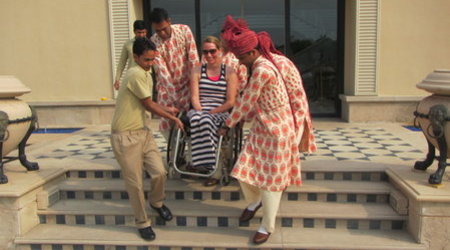
Accessible India: Where There’s Magic Around Every Corner
Lynne Kirby shares her experiences of exploring the Golden Triangle of India.

Walking Holidays: Free Your Mind
Steve Jack explains how a walking holiday can be good for body, mind, and soul.
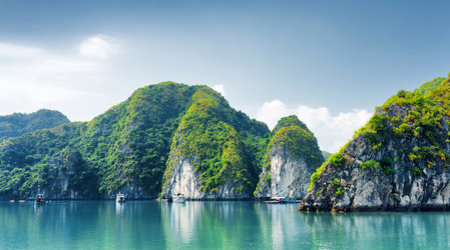
Tips for Your First Trip to Vietnam
Are you thinking of going to Vietnam? If so, here are a few top tips, and FAQ's, answered. How do I get a Visa? What's the weather like? How do I behave and dress?

The Vistula District
The Vistula river has beaches, boulevards, and an active nightlife surrounding it.
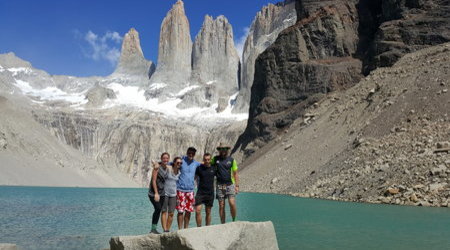
What is Overlanding?
You might've heard of the term 'overlanding' on the television, in an article, or popping up on Facebook. But what exactly is it? We have the answer for you.
Please enter your username and password to logon to the member pages
By clicking the box above, you agree that a cookie will be placed in your browser to retain your login details Forgotten password?

ILTUOSTUDIOCOM.IT
Agenzia di viaggio o Tour Operator: Qual è la differenza?

Quando si tratta di pianificare un viaggio, spesso ci si trova di fronte a una vasta scelta di servizi offerti da agenzie di viaggio e tour operator. Ma quale è la differenza tra i due? In sostanza, un’agenzia di viaggio è un intermediario che aiuta i clienti nella prenotazione di voli, alloggi e pacchetti turistici, fornendo informazioni e consigli sulle destinazioni. D’altra parte, un tour operator è un’azienda che organizza e gestisce pacchetti turistici completi, inclusi trasporti, alloggi, visite guidate e altre attività, spesso con un tema specifico. Mentre le agenzie di viaggio offrono una vasta gamma di servizi, i tour operator si concentrano su itinerari predefiniti e offrono un’esperienza più strutturata. Quindi, la scelta tra agenzia di viaggio e tour operator dipende dalle preferenze personali, dal tipo di viaggio desiderato e dal livello di organizzazione richiesto.
- Scelta personalizzata: Un vantaggio dell’agenzia di viaggio è la possibilità di ricevere una consulenza personalizzata sulla scelta delle destinazioni, dei voli, degli hotel e delle attività da svolgere durante il viaggio. L’agenzia di viaggio può consigliare e adattare il pacchetto turistico alle esigenze e ai desideri specifici del cliente.
- Assistenza durante il viaggio: Le agenzie di viaggio offrono supporto e assistenza durante tutto il viaggio. In caso di imprevisti o cambiamenti dell’itinerario, l’agenzia di viaggio è in grado di fornire soluzioni immediate e assistenza costante.
- Pacchetti turistici completi: I tour operator offrono pacchetti turistici completi che includono voli, hotel, trasferimenti e attività. Questo permette ai viaggiatori di avere tutto organizzato in un unico pacchetto, rendendo più semplice e comodo l’organizzazione del viaggio.
- Garanzia di sicurezza: I tour operator sono responsabili dell’organizzazione e della sicurezza dei loro pacchetti turistici. Ciò significa che i viaggiatori possono godersi il viaggio con la tranquillità di essere assistiti e protetti in caso di imprevisti o problemi durante il viaggio.
- Limitazioni nella personalizzazione del viaggio: Mentre un tour operator offre pacchetti di viaggio predefiniti, un’agenzia di viaggi può offrire maggiori opzioni di personalizzazione. Questo significa che i viaggiatori che scelgono un tour operator potrebbero non avere la possibilità di personalizzare il loro itinerario, scegliere specifici hotel o modificare le attività incluse nel pacchetto.
- Meno flessibilità nella scelta dei servizi: Un tour operator spesso ha accordi esclusivi con determinati fornitori di servizi, come hotel, compagnie aeree o tour locali. Ciò può limitare la flessibilità dei viaggiatori nella scelta dei servizi desiderati. Ad esempio, se un tour operator ha un accordo esclusivo con un determinato hotel, i viaggiatori potrebbero essere obbligati a soggiornare in quel particolare hotel, anche se preferiscono un altro.
Cosa fa il tour operator?
Il tour operator è un’azienda specializzata nel fornire servizi turistici completi, organizzando l’intero viaggio e creando itinerari su misura per i propri clienti. Grazie alla sua esperienza e conoscenza diretta delle destinazioni, il tour operator si occupa di tutti gli aspetti del viaggio, come prenotazione di voli, hotel, trasporti e attività, garantendo un’esperienza senza stress e personalizzata. Inoltre, il tour operator si adatta ai desideri e alle preferenze dei viaggiatori, offrendo soluzioni su misura per rendere ogni vacanza unica e indimenticabile.
Il tour operator si occupa di tutti gli aspetti del viaggio, organizzando itinerari personalizzati e prenotando voli, hotel, trasporti e attività, garantendo un’esperienza turistica unica e senza stress.
Cosa si intende per agenzie di viaggio?
Le agenzie di viaggio e turismo sono imprese specializzate nella produzione, organizzazione e intermediazione di viaggi e soggiorni, offrendo una vasta gamma di servizi turistici sia per i clienti che desiderano viaggiare all’estero (outgoing) che per quelli provenienti da altre destinazioni (incoming). Queste agenzie si occupano di pianificare itinerari, prenotare voli e alloggi, organizzare escursioni e fornire assistenza ai clienti durante tutto il loro viaggio. In sintesi, le agenzie di viaggio offrono un servizio completo per rendere l’esperienza di viaggio dei loro clienti piacevole e senza problemi.
Le agenzie di viaggio e turismo sono esperte nella gestione di viaggi e soggiorni, mettendo a disposizione una vasta gamma di servizi turistici per i clienti che desiderano viaggiare all’estero (outgoing) o che provengono da altre destinazioni (incoming). Queste agenzie si occupano di pianificare itinerari, prenotazioni di voli e alloggi, organizzazione di escursioni e assistenza continua durante il viaggio, offrendo un servizio completo per rendere l’esperienza dei loro clienti piacevole e senza intoppi.
Quali sono i criteri per distinguere le agenzie di viaggio?
Le agenzie di viaggio possono essere distinte in diverse tipologie in base alle attività che svolgono. Le agenzie organizzatrici si occupano di pianificare e organizzare interamente i viaggi per i propri clienti, dalla prenotazione dei voli e degli alloggi, fino alla programmazione delle attività durante il soggiorno. Le agenzie venditrici in proprio invece mettono a disposizione dei clienti i pacchetti viaggio e si occupano della vendita diretta dei servizi turistici. Le agenzie venditrici intermediarie fungono da tramite tra i clienti e i fornitori di servizi turistici, offrendo consulenza e assistenza nella scelta e nell’acquisto dei viaggi. Alcune agenzie possono svolgere più di una di queste attività.
Le agenzie di viaggio si distinguono in diverse tipologie in base alle attività svolte. Le agenzie organizzatrici si occupano di pianificare e organizzare interamente i viaggi per i clienti, gestendo la prenotazione dei voli, degli alloggi e delle attività. Le agenzie venditrici offrono pacchetti viaggio e si occupano direttamente della vendita dei servizi turistici. Le agenzie venditrici intermediarie, invece, fungono da intermediari tra i clienti e i fornitori di servizi, offrendo consulenza e assistenza nella scelta e nell’acquisto dei viaggi.
1) “La distinzione tra agenzia di viaggio e tour operator: qual è il tuo compagno di viaggio ideale?”
La distinzione tra agenzia di viaggio e tour operator è fondamentale per scegliere il compagno di viaggio ideale. L’agenzia di viaggio offre servizi di consulenza e prenotazione di voli, hotel e trasporti, garantendo un’organizzazione personalizzata del viaggio. Il tour operator, invece, organizza pacchetti turistici completi, comprensivi di voli, alloggio e attività, offrendo un’esperienza di viaggio più strutturata. La scelta dipende dalle esigenze e dalle preferenze personali: se si desidera un viaggio su misura o un’esperienza più organizzata e guidata.
In conclusione, la scelta dell’agenzia di viaggio o del tour operator dipende dalle preferenze personali e dalle esigenze di viaggio: se si desidera un’organizzazione personalizzata o un’esperienza più strutturata.
2) “Dai un’occhiata dietro le quinte: scopri le differenze tra agenzia di viaggio e tour operator”
Spesso quando si pianifica un viaggio, ci si imbatte nei termini “agenzia di viaggio” e “tour operator”, ma quali sono le differenze tra i due? Un’agenzia di viaggio è un’entità che si occupa di organizzare e vendere pacchetti turistici, prenotare voli e hotel, fornire assistenza durante il viaggio. D’altra parte, un tour operator è un’azienda che crea e gestisce pacchetti turistici, organizza le escursioni e si occupa della logistica. Quindi, mentre l’agenzia di viaggio si occupa di vendere i prodotti turistici, il tour operator si occupa di crearli e organizzarli.
In sintesi, l’agenzia di viaggio si occupa della vendita e dell’assistenza ai clienti, mentre il tour operator si occupa della creazione e organizzazione dei pacchetti turistici.
In conclusione, la differenza tra un’agenzia di viaggio e un tour operator risiede principalmente nella loro funzione e nella portata dei servizi offerti. Mentre un’agenzia di viaggio si occupa della prenotazione e dell’organizzazione di viaggi e vacanze per conto dei clienti, un tour operator si occupa di progettare e creare pacchetti turistici completi, inclusi il trasporto, l’alloggio e le attività. L’agenzia di viaggio agisce come intermediario tra i clienti e i fornitori di servizi turistici, mentre il tour operator si assume la responsabilità diretta dell’intero viaggio. Inoltre, il tour operator può anche offrire servizi specifici come guide turistiche, assistenza in loco e programmi di animazione. Entrambi svolgono un ruolo importante nell’industria del turismo, ma hanno approcci e responsabilità leggermente diversi. È fondamentale scegliere attentamente in base alle proprie esigenze e preferenze personali al fine di garantire un’esperienza di viaggio indimenticabile.

Isabella Materazzi è una contabile professionista con una grande passione per il mondo dei numeri. Ha dedicato gli ultimi dieci anni alla consulenza finanziaria e contabile per aziende di varie dimensioni e settori. Nel suo blog, condivide consigli e strategie per aiutare le persone a gestire al meglio le proprie finanze personali e aziendali. Isabella è conosciuta per la sua capacità di trovare soluzioni creative e innovative per ottimizzare le finanze delle aziende e garantire il loro successo a lungo termine.

Tour Organizer
Se l’organizzazione di viaggi precofezionati è tipica del tour operator , l’assemblaggio di viaggi o vacanze su richiesta di clienti individuali o di gruppo che esprimono le loro aspettative di vacanza (viaggio tailor made), dà vita alla specializzazione funzionale del tour organizer .
Tale modalità di organizzazione di un package tour può essere realizzata da una agenzia di viaggio dettagliante, ma anche da un tour operator nel momento in cui si attiva per confezionare un pacchetto di servizi turistici sulla base di specifiche indicazioni di un cliente.
Il tour organizer svolge una attività di consulenza accompagnata dalla prestazione diretta di alcuni servizi (selezioni alternative, prenotazioni, conferme, assistenza prima e durante il viaggio, ecc.). Il prodotto finale è quindi venduto direttamente ai committenti ad un prezzo complessivo determinato dallo stesso operatore applicando alle tariffe nette dei servizi il mark up desiderato.
La composizione strutturale dei costi collegati ad attività di confezionamento di viaggi tailor made è caratterizzata da una dimensione molto modesta dei costi fissi che consente una notevole elasticità di gestione .
La minore forza contrattuale rispetto i tour operator, decrescente parallelamente al diminuire delle dimensioni aziendali, comporta una minore possibilità di selezione degli impianti ed una minore capacità di imporre prezzi economici.
Veri fattori di differenziazione sono la dimensione complessiva del traffico, dell’attività promozionale e, soprattutto, le modalità di vendita dei prodotti e di acquisizione dei servizi.
Il tour operator – lavorando su archi stagionali di occupazione dei servizi di ampia durata e, nel caso di programmazione a catena, convogliando flussi di clientela costanti, avvalendosi di una ampia rete di vendita, di una grande capacità organizzativa e finanziaria e, soprattutto, di una massiccia attività pubblicitaria e di promozione alle vendite che gli consente di avere una rilevante capacità di influenzare rete distributiva e cliente finale- riesce ad ottenere prezzi più bassi.
Tuttavia operando sulla base di previsioni relative alle tendenze dei consumatori, utilizzando strumenti di acquisizione dei servizi a maggior livello di rischio, investendo in promozione e nella predisposizione di cataloghi, il tour operator si caratterizza per una maggiore rigidità strutturale e per un elevato rischio di variabilità degli utili.
Il tour organizer, invece, rischia assai di meno perché, attivandosi dietro una specifica commessa, adotta contratti molto elastici per l’acquisizione dei servizi, acquistando definitivamente i servizi che gli occorrono solo dopo aver venduto i relativi prodotti a clienti individuali o a gruppi precostituiti.
Il problema di fondo per il tour organizer è, pertanto, quello di attrarre il cliente, singolo o di gruppo, nel punto di vendita (che è anche punto di produzione), utilizzando tecniche di richiamo proprie del piccolo e medio dettagliante: vetrinistica, insegne, ubicazione ed arredamento, competenza e serietà del personale di banco, limitata pubblicità inserzionistica, iniziative promozionali verso aziende, associazioni, enti, opinion leader, ecc..
Di fatto, la figura del tour operator e quella del tour organizer tendono a strutturarsi nella pratica in forme intermedie e commiste con conseguenti delicati problemi di concorrenza.
Il dettagliante che opera anche come tour organizer preferisce vendere i propri viaggi su misura piuttosto che quelli confezionati dai tour operator e, dall’altra, i tour operator tendono a scavalcare l’intermediazione rivolgendosi direttamente ai consumatori e a personalizzare sempre più la propria programmazione, in maniera da sfruttare le disponibilità di servizi turistici e le proprie conoscenze delle destinazioni per soddisfare anche richieste molto specifiche della clientela.
Voci correlate
- Travel party
- Valore soggettivo

Tour Operator

Tags: Destination Management Travel Management
Academy FormazioneTurismo.com
Lascia un commento.
Devi essere connesso per inviare un commento.
- CORSI IN AULA
- CORSI ON LINE
- MASTER IN AULA
- CORSI DI LAUREA
- RISORSE DIGITALI

- Select Travel 101
- Travel News
- People You Should Know
- Trip Search
- Tour Operators
- Travel Themes
- Itinerary Listings
- Travel Stories
- Photo Galleries
- Our Magazine
- Digital Edition
- Advertise With Us

Travel Toolbox: Choosing a Tour Operator
T here is no more important decision you make as a travel planner than deciding what providers to trust with your group’s time and money. if you use tour operators for your travel, selecting the right organization can make or break your trip ..
Tour operators offer invaluable services to the group travel industry. Their knowledge and expertise enables them to help you find destinations and itineraries that will thrill your travelers, and their networks of professional employees and partners can handle even the most complicated of travel logistics, taking most of the hassle of travel planning off your shoulders. And because they enjoy great economies of scale, tour operators can often offer you trips at prices you wouldn’t be able to get for yourself.
But not all tour operators are created equal. There are hundreds of these companies across the country, each with different expertise, business practices and value propositions.
When it’s time to choose a tour operator to take care of your next group trip, keep these five key factors in mind.
Like any company, every tour operator has its own areas of expertise. Some large tour companies are generalists that offer a consistent product across many different destinations around the world. Others are boutique operations that have deep networks in one particular destination or region. There are pros and cons to both of these approaches. If your travelers are very enthusiastic about visiting a certain place, it may be worthwhile to choose a company with a deeper expertise there. Large companies, however, are likely to deliver a reliable experience no matter where you travel with them, even if they miss out on some of the finer details a specialist would provide.
Price will always be a consideration when shopping for travel, but it should never be the only factor that drives your decisions. There are many elements that affect the price of a tour, and if a tour operator advertises bargain-basement prices on a trip, there’s likely to be a reason. When you talk to tour operators about price, be sure to inquire about what those prices include. What level of hotels do they use, and how close are those hotels to the city center? How many meals are included, and what is the quality of the restaurants? Do the prices include admission tickets, taxes and tips? Sometimes the lowest price doesn’t equate to the best value, especially if your travelers have sophisticated taste.
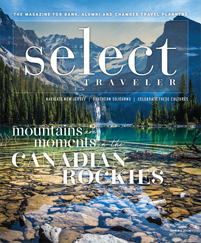
Stay Connected!

Connect with us!
- Explore Destinations
- Partner Links
© 2024 The Group Travel Leader, Inc. All rights reserved. Website by Cabedge – an Atiba Company
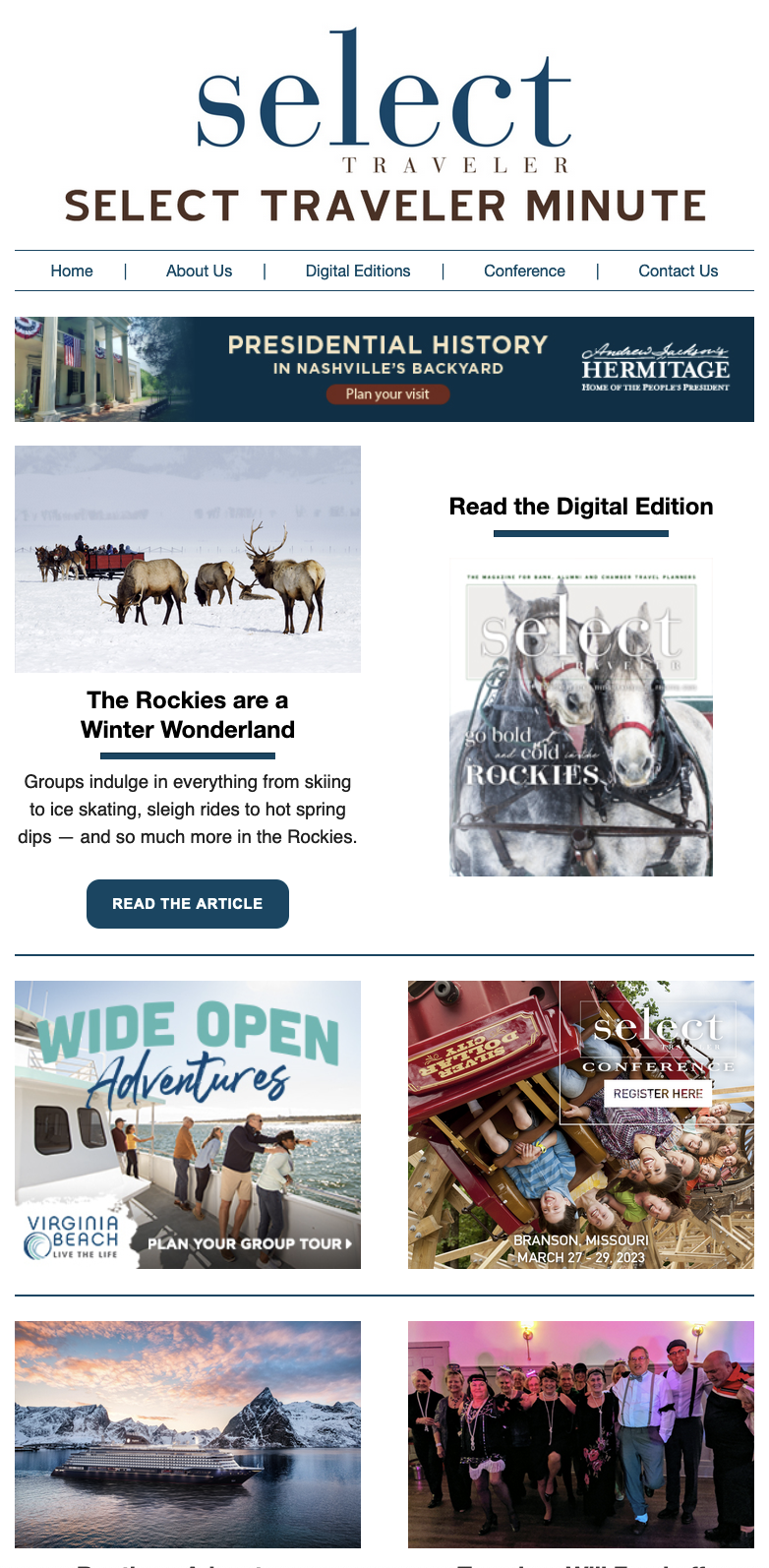
Looking For More Affinity Travel Ideas?
Get travel tips, destination ideas and more in our e-newsletter Select Traveler Minute.
Now Open: scopri le procedure aggiornate per viaggiare nel mondo
Travel is our business
Cos'è e cosa fa un tour operator.
Chi siamo Lavorare Tailor made Questione di Dettagli Partner -->
Organizziamo la tua vacanza
Il Tour Operator, Operatore Turistico o Tour Organizer, è l'azienda che fornisce l'intero viaggio , che organizza l'itinerario completo, risparmiandoti qualsiasi onere, creando un prodotto completo basato sull'esperienza e la conoscenza diretta delle destinazioni e, ovviamente, secondo i tuoi desideri!
Quando il Tour Operator è anche "tailor-made" come IDEE PER VIAGGIARE , significa che è in grado di organizzare itinerari turistici basandosi sulle tue richieste , ovvero creando un viaggio che sia esattamente quello che desideri, personalizzato solo per te.
In più, oltre ad organizzare il viaggio "tailor-made", IDEE PER VIAGGIARE ti garantisce:
- Elevati standard di qualità, sicurezza e di congruenza del viaggio (tempi, distanze, rischi ecc.)
- La responsabilità di tutto quanto avviene durante il tuo viaggio, particolarmente per i servizi che lo compongono: siamo il tuo referente privilegiato per ogni eventualità
- L' assistenza 24/7 in tutte le fasi della tua vacanza: prima, durante (anche con i nostri corrispondenti in loco) e al tuo ritorno
- La scelta più adeguata delle coperture assicurative (come quella in caso di annullamento del viaggio, per l’assistenza medica, per la perdita o il danneggiamento del bagaglio e via dicendo, fino alla polizza specifica per i rischi dovuti al Covid-19)
- La possibilità di ottenere le protezioni previste dal Fondo di Garanzia ASTOI : IDEE PER VIAGGIARE è socio di ASTOI (Confindustria)
Qualità del viaggio e garanzia
Il Tour Operator è l'azienda che oltre a garantirti una vacanza organizzata con professionalità, è responsabile direttamente dei servizi che compongono il tuo viaggio.
Assistenza 24/7
Puoi contare su di noi da prima dell’inizio della tua vacanza fino alla fine e siamo pronti per risolvere e supportarti di fronte ad ogni eventualità che dovesse verificarsi durante il viaggio.
Servizi testati e selezionati
Conosciamo perfettamente le destinazioni che trattiamo, le strutture alberghiere e i luoghi, ci siamo stati e ci torniamo continuamente, per poterti garantire la qualità del tuo viaggio.
Molti ignorano queste fondamentali caratteristiche quando decidono di prenotare dei servizi turistici: perché correre rischi, anche importanti, inutilmente?
#fidatidellapalma, call center, assistenza in viaggio, +39 06.56559866 sempre attivo (24/7), +39 06.52098111 sempre attivo (24/7), [email protected].
Al fine di garantirti un’accurata assistenza per ogni eventualità, prendi nota di questi contatti nel caso in cui la tua agenzia di viaggi di riferimento risultasse chiusa. I contatti sono validi anche qualora ti trovassi all’estero e non riuscissi a contattare i nostri assistenti locali ai numeri riportati sui tuoi documenti di viaggio.
Tours , Travel Tips
Understanding the difference between tour operator and travel agencies: a comprehensive guide.
- October 15, 2023
- No Comments
The travel industry is a huge and complex network of companies that each play a unique role in meeting the constantly changing requirements of tourists. Travel agencies and tour operators are two major participants in this market. Despite their frequent interchangeability, they have distinct roles, duties, and effects on your trip. In order to help you make wise choices the next time you embark on a journey, this book seeks to make those distinctions clear.
Overview of the Travel Sector Environment
Prior to getting too technical, it’s important to comprehend the overall travel business scenario. It includes travel agencies, hotels, rental car agencies, tour operators, and airlines, among others. Everybody has a specialty and works together to provide passengers with a smooth experience. Although they serve different purposes, tour operators and travel companies in particular serve as a middleman between the tourist and other service providers.
What is a Tour Operator?
A tour operator is a business or a person who designs and plans package vacations. These packages often include a variety of travel-related services, such as lodging, transportation, sightseeing, and occasionally meals, into a single item. These packages are created by tour operators using their knowledge, research, and connections to other service providers.
Key Functions of a Tour Operator
1. package creation.
They create distinctive travel packages for a variety of passenger types, including families, couples, and adventure seekers.

2. Coordination with Service Providers
To deliver a seamless travel experience, tour operators communicate with lodging establishments, transportation providers, and local guides.
3. Bulk Booking
They frequently reserve services in large quantities to get lower costs that they can then pass along to the client.
4. Quality Control
Monitoring lodging, transit, and other services on a regular basis to ensure that they meet quality standards.
What is a Travel Agency?
A company that represents passengers as an agent is known as a travel agency. They handle and market travel-related goods and services, ranging from hotel reservations and airline tickets to whole vacation packages (which are occasionally obtained through tour operators).
Key Functions of a Travel Agency
1. booking services.
They assist clients in making reservations for buses, trains, airplanes, and other forms of transportation.
2. Accommodation
Travel agencies have the ability to reserve hotels, resorts, or other types of lodging for their clients.
3. Itinerary Planning
While not as comprehensive as tour packages, they can assist in organizing an itinerary according to the requirements of a visitor.
4. Providing Insurance and Other Services
A lot of organizations provide currency exchange, travel insurance, help with visas, and other services.
Key Distinctions Between Travel Agencies and Tour Operators
1. the type of service.
Travel agencies mostly offer individual services or serve as sales representatives for travel items, whereas tour operators concentrate on the entire experience by designing multi-day vacation packages.
Tour operators engage directly with service providers like hotels and airlines, operating on a greater scale. Conversely, travel agencies may have closer relationships with certain clients.
Tour operators may provide better packages because of their direct relationships and large booking volume. Although they could provide more alternatives, travel agencies might not have the same pricing advantage for packages.
4. Expertise
Tour operators may create more personalized packages since they frequently have extensive understanding of particular trip locations or itineraries. While their expertise may be more general, travel companies may not have a focus on a particular area.
Which One Is Better to Select?
Your choice between a travel agency and a tour operator primarily comes down to the type of trip you’re looking for.
- In Search of Tailored, Stress-Free Experiences: A tour operator that specializes in these areas could be a better option if you’re searching for a more specialized experience, like a safari in Africa or hiking in the Himalayas.
- For freedom and Variety: A travel agency can provide you the necessary freedom if you would rather plan your own itinerary and choose specific components such as hotels, airlines, and excursions.
The Development of Travel Agencies and Tour Operators
In the past, there was a clearer distinction between the functions of travel agents and tour operators. Travel agencies served as middlemen in the early stages of contemporary tourism, mainly handling bookings and ticket sales. On the other hand, tour operators arose alongside the popularity of package vacations, particularly following World War II when leisure travel took off.
However, both groups have had to adjust because to changes in passenger behavior and technology improvements. Their operations have been changed with the introduction of internet booking platforms and direct-to-consumer marketing tactics. These days, a lot of travel companies sell package packages, and tour operators offer individual services, so the roles they play are pretty much interchangeable. However, there is still a fundamental distinction between their respective roles.
The Industry’s Reaction to Digital
Travelers have access to more resources than ever before in the digital era. Travel packages, lodging, and even flights may be booked instantly using websites, applications, and online platforms. The transition to digitalization has affected travel agents as well as tour operators.
These days, tour operators may reach out to customers directly through their websites, blogs, and social media accounts. Through user feedback, virtual tours, and video material, they may highlight immersive experiences. However, through internet portals where clients can compare costs, read reviews, and personalize their vacation plans, travel companies have increased the range of services they provide.
Ecological and Conscientious Travel
The emphasis on sustainability and responsible travel is one new trend in the travel business. In order to promote and engage in sustainable tourism, both tour operators and travel agents are involved.
It is possible for tour operators to design packages that emphasize ecotourism, help out local populations, and make sure tourism doesn’t negatively impact the ecology or customs of the area. They can collaborate with eco-friendly lodging establishments, advertise low-impact events, and instruct tourists on ethical behavior.
In addition to offering bookings and information, travel firms may help guests make sustainable decisions. They may give suggestions for environmentally friendly lodging, cultural sensitivity advice, and even flying carbon offset alternatives.
The Future of Travel Agencies and Tour Operators
The importance of the human touch endures, even as consumer behavior and technology continue to transform the travel business. Personalized services, professional guidance, and a sincere concern for tourists’ experiences are things that technology and direct reservations cannot provide.
Travel agents will persist in creating distinctive, niche experiences, providing tourists with immersive expeditions tailored to particular passions. Conversely, it is probable that travel companies will adopt a more consultative role, functioning as consultants who offer suggestions grounded in their own experiences and areas of expertise.
Tour operators and travel agencies play a vital role in providing everyone with hassle-free, engaging, and unforgettable travel experiences, regardless of how the travel industry changes.
Sometimes it’s difficult to distinguish between tour operators and travel agencies, especially since so many companies provide a combination of the two services. Nonetheless, being aware of their main distinctions and advantages can help you select the best traveling companion. Knowing each company’s responsibilities will make the trip go more smoothly and pleasurable, whether it’s through the flexible services of a travel agency or the all-inclusive care of a tour operator. Travel safely!
Leave a Reply Cancel reply
Your email address will not be published. Required fields are marked *
Save my name, email, and website in this browser for the next time I comment.

Comprehensive Book Summary of The Diary of a CEO The 33 Laws of Business and Life

The Psychology of Money: The Most Comprehensive Book Summary (updated for 2024)

Every Night with My Son: A Journey into Baby Portrait Photography with Just a Mobile Phone

Your Love Story Through My Lens: Offering Free Wedding Photography in the Philippines for a Limited Time
Keep reading, related article.

The Diary of a CEO The 33 Laws of Business and Life (by Steven Bartlett) Comprehensive Book Summary: Ultimate Guide Updated 2024 Introduction Few voices

Psychology of Money (Morgan Housel) Brief Summary More than just the technical parts of economics or financial planning, Morgan Housel’s “The Psychology of Money” delves
Signup on my newsletter to get update information, news & insight.

I created this website to serve as a personal photo blog where I am posting all the photos and videos I’ve taken from 11+ years of travel.
- Photography
- Featured Articles
- Travel Tips
Destinations
- South Korea
- Philippines
Get in touch
- Term of use
- Privacy Policy
- Cookie Policy
Qual è la differenza tra tour operator e Tour Organizer?
Che cos'è il grand tour alfieri, che attività svolgono i tour operator, cosa rappresenta il grand tour, cosa emette il tour organizer, chi inventò il grand tour, come nasce il grand tour, cosa fa il programmatore turistico.

Il Tour Operator , Operatore Turistico o Tour Organizer , è l'azienda che fornisce l'intero viaggio, che organizza l'itinerario completo, risparmiandoti qualsiasi onere, creando un prodotto completo basato sull'esperienza e la conoscenza diretta delle destinazioni e , ovviamente, secondo i tuoi desideri!
Il Grand Tour era un lungo viaggio nell'Europa continentale intrapreso dai ricchi dell'aristocrazia europea a partire dal XVII secolo e destinato a perfezionare il loro sapere con partenza e arrivo in una medesima città. Aveva una durata non definita e di solito aveva come destinazione l'Italia.
Il Tour operator è una figura cardine nel mondo turistico, perché si occupa della costruzione dettagliata del viaggio: dalla scelta del volo o di un treno a quella dell'albergo, dalla prenotazione dei transfer a quella di servizi aggiuntivi che ruotano intorno alla vacanza.
grand tour Giro delle principali città e zone d'interesse artistico e culturale europee, considerato, nei sec. 18° e 19°, parte essenziale dell'educazione di giovani di buona famiglia.
Il tour organizer è una particolare tipologia che organizza e vende viaggi su misura, studiati cioè secondo le richieste del cliente. Possiede quindi uffici aperti al pubblico nei quali, allo stesso tempo, può svolgere attività di intermediazione e attività di produzione e organizzazione di pacchetti turistici.
Celebri viaggiatori raggiungono il “paese dei limoni” (come lo descrisse Goethe) e scrivono diari, relazioni o vere e proprie guide per illustrare i loro viaggi. È Richard Lassels, prete cattolico inglese del tardo Seicento, a dare forma all'idea del Grand Tour , e anche a dargli il nome.
L'obiettivo primario del Grand Tour era il viaggio in Italia, dove giovani artisti, aristocratici e uomini di stato, vennero a toccare con mano i resti della cultura classica. Le origini del Tour si possono trovare nel XVI secolo, ma toccò il suo apice nei secoli tardo XVII e XVIII.
Il programmatore turistico è la figura professionale che si occupa di ideare, collaudare e promuovere nuovi prodotti turistici , cioè “pacchetti di viaggio”.
Post correlati:

Cosa c'è in una sala giochi?

Come si gioca a What do you meme?

Come unire 2 volti in uno?

Cosa ha bisogno un asino?
Tópicos populares.

¿Qué significa cuando te mandan ? ??

Quando il vento è considerato forte?

Cosa vuol dire la sua pratica è stata evasa?

Quanto tempo può stare un uomo senza avere rapporti sessuali?

Quanti punti servono per passare il TOLC su?

Cosa fare a burraco quando finiscono le carte?
Últimos tópicos.

Cosa dice l'equazione di Drake?

Chi ha ucciso Doctor Strange?

Quanti ettari per una mucca?

Come mai si ingrossa il naso?

Quanti tipi di dribbling ci sono?

Che cosa è la decorrenza?
Explore Jobs
- Jobs Near Me
- Remote Jobs
- Full Time Jobs
- Part Time Jobs
- Entry Level Jobs
- Work From Home Jobs
Find Specific Jobs
- $15 Per Hour Jobs
- $20 Per Hour Jobs
- Hiring Immediately Jobs
- High School Jobs
- H1b Visa Jobs
Explore Careers
- Business And Financial
- Architecture And Engineering
- Computer And Mathematical
Explore Professions
- What They Do
- Certifications
- Demographics
Best Companies
- Health Care
- Fortune 500
Explore Companies
- CEO And Executies
- Resume Builder
- Career Advice
- Explore Majors
- Questions And Answers
- Interview Questions
Tour Operator Vs Operator
The differences between tour operators and operators can be seen in a few details. Each job has different responsibilities and duties. While it typically takes 1-2 years to become a tour operator, becoming an operator takes usually requires 2-4 years. Additionally, a tour operator has an average salary of $47,294, which is higher than the $37,928 average annual salary of an operator.
The top three skills for a tour operator include reservations, customer service and customer feedback. The most important skills for an operator are safety procedures, CDL, and emergency calls.
Tour operator vs operator overview
Tour operator vs operator salary.
Tour operators and operators have different pay scales, as shown below.
Differences between tour operator and operator education
There are a few differences between a tour operator and an operator in terms of educational background:
Tour operator vs operator demographics
Here are the differences between tour operators' and operators' demographics:
Differences between tour operator and operator duties and responsibilities
Tour operator example responsibilities..
- Plan itineraries, make reservations, lead tours, obtain licenses for foreign pilots, manage a fleet of light aircraft.
- Manage VIP guest calendar to ensure these guests are given quality service from staff.
- Process and issue airlines, transfers, hotels, and city tours reservations for groups.
- Train customers in operating Segway personal transport devices and hold entertaining tours.
- Film all selection tour events and act as intermediary between AAG and hundreds of Midwestern media outlets.
Operator Example Responsibilities.
- Assist in developing the company s short and long term training plans and managing yearly ammunition allocation.
- Assist and manage the extrusion process of polyester raw material in pellet or chip form to produce finish rolls of plastic.
- Manage day-to-day transportation and logistics services for multinational account base.
- Manage the master calendar and schedule resources such as communication equipment, weapons, transportation and ammunition forecast and delivery.
- Job require basic math skills: fractions and decimals.
- Ensure safety of all equipment during production in compliance with strict OSHA and safety regulations.
Tour operator vs operator skills
- Reservations, 32%
- Customer Service, 22%
- Customer Feedback, 4%
- Travel Arrangements, 3%
- Tour Guides, 3%
- Reservation System, 3%
- Safety Procedures, 15%
- Emergency Calls, 6%
- Preventative Maintenance, 4%
- Quality Checks, 4%
Tour Operator vs. Similar Jobs
- Tour Operator vs Tour Agent
- Tour Operator vs Wholesaler
- Tour Operator vs Information Systems Technician
- Tour Operator vs Operator
- Tour Operator vs Hunting Guide
- Tour Operator vs River
- Tour Operator vs Wilderness Guide
- Tour Operator vs Museum Guide
- Tour Operator vs Outdoor Guide
- Tour Operator vs Museum Attendant
- Tour Operator vs Escort Service Attendant
- Tour Operator vs Art Museum Aide
Tour Operator Related Careers
- Art Museum Aide
- Campus Tour Guide
- Driver/Guide
- Escort Service Attendant
- Fishing Guide
- Hunting Guide
- Museum Attendant
- Museum Guide
- Outdoor Guide
- River Guide
Tour Operator Related Jobs
- Art Museum Aide Employment Near Me
- Campus Tour Guide Employment Near Me
- Docent Employment Near Me
- Driver/Guide Employment Near Me
- Escort Employment Near Me
- Escort Service Attendant Employment Near Me
- Fishing Guide Employment Near Me
- Guide Employment Near Me
- Hunting Guide Employment Near Me
- Museum Attendant Employment Near Me
- Museum Guide Employment Near Me
- Operator Employment Near Me
- Outdoor Guide Employment Near Me
- River Employment Near Me
- River Guide Employment Near Me
What Similar Roles Do
- Escort Responsibilities
- Guide Responsibilities
- Operator Responsibilities
- River Rafting Guide Responsibilities
- Tour Guide Responsibilities
- Zippia Careers
- Personal Care and Attendants Industry
- Tour Operator
Browse personal care and attendants jobs
Scopri i migliori tour operator negli Stati Uniti: il viaggio dei tuoi sogni!
- octubre 16, 2023
- Stati Uniti
Se stai cercando un’esperienza unica e indimenticabile negli Stati Uniti, i tour operator specializzati possono rendere il tuo viaggio ancora più speciale. Con una vasta gamma di opzioni tra cui scegliere, questi tour operator offrono itinerari personalizzati, guide esperte e l’accesso a luoghi esclusivi che altrimenti potresti non scoprire da solo. Che tu desideri esplorare le vibranti città della costa est, avventurarti nelle maestose montagne del Colorado o immergerti nella natura selvaggia dell’Alaska, i migliori tour operator degli Stati Uniti ti offriranno tutto ciò che desideri e molto altro. Prenditi il tempo per pianificare il tuo viaggio con un tour operator specializzato e preparati ad essere stupito dalle bellezze e dalle meraviglie degli Stati Uniti.
Qual è il miglior tour operator?
Il Gruppo Alpitour si conferma il miglior tour operator, ottenendo un indice di apprezzamento del 75,2%. Questo risultato gli permette di occupare tutte e tre le posizioni sul podio. Un riconoscimento che conferma la qualità e la soddisfazione dei clienti nei confronti dei servizi offerti da Alpitour.
Il Gruppo Alpitour si conferma leader nel settore dei tour operator, ottenendo un altissimo indice di apprezzamento del 75,2%. Questo risultato gli permette di ottenere tutte e tre le posizioni sul podio, confermando la qualità e la soddisfazione dei clienti verso i servizi offerti da Alpitour.
Qual è il costo di un viaggio organizzato in America?
Se stai pensando di organizzare un viaggio negli Stati Uniti, è importante tenere in considerazione i costi che dovrai affrontare. In media, i prezzi per un tour di due settimane accompagnato partono da circa 3500€ a persona. Questo budget comprende il trasporto, l’alloggio, i pasti e le attività durante il viaggio. È sempre consigliabile fare una ricerca accurata e confrontare le offerte disponibili per ottenere il miglior rapporto qualità-prezzo. Pianificare in anticipo ti aiuterà a evitare sorprese e a goderti al massimo la tua avventura americana.
Se desideri visitare gli Stati Uniti, è fondamentale considerare attentamente i costi associati al viaggio. Un tour di due settimane, incluso il trasporto, l’alloggio, i pasti e le attività, può avere un costo medio di circa 3500€ a persona. Effettuare una ricerca approfondita e confrontare le offerte disponibili è sempre consigliabile per ottenere il miglior rapporto qualità-prezzo e goderti appieno l’avventura americana.
Qual è la differenza tra un tour operator e un Tour Organizer?
La differenza tra un tour operator e un Tour Organizer è sottile ma significativa. Un tour operator è un’azienda che organizza e vende pacchetti turistici completi, compresi trasporti, alloggi, visite guidate e altre attività. Un Tour Organizer, invece, si occupa principalmente di organizzare e coordinare specifiche attività o eventi all’interno di un viaggio o di un tour già prenotato tramite un tour operator. In sostanza, il tour operator si occupa dell’intero pacchetto turistico, mentre il Tour Organizer si concentra su particolari aspetti o esperienze all’interno di quel pacchetto.
Un tour operator si occupa dell’organizzazione completa di pacchetti turistici, mentre un Tour Organizer si concentra su specifiche attività o eventi all’interno di un viaggio prenotato tramite un tour operator.
Alla scoperta dell’America: i migliori tour operator per un viaggio negli Stati Uniti
Stai pianificando un viaggio indimenticabile negli Stati Uniti? Ecco alcuni dei migliori tour operator specializzati nell’organizzazione di avventure americane. Per gli amanti della natura, Wild America propone escursioni tra i parchi nazionali più spettacolari, mentre USA Explorer offre tour culturali e storici nelle principali città. Per gli appassionati di avventura, Adventure USA organizza itinerari di trekking e sport estremi. Se invece sei interessato alla scoperta della gastronomia locale, Foodie Tours America ti porterà alla ricerca dei sapori autentici degli USA. Pianifica il tuo viaggio con i migliori esperti del settore!
Per i viaggiatori desiderosi di un’esperienza unica negli Stati Uniti, una vasta gamma di tour operator specializzati è pronta ad offrire avventure su misura. Dai parchi nazionali agli itinerari culturali, dai tour di trekking all’esplorazione gastronomica, questi esperti sono pronti a rendere il tuo viaggio indimenticabile.
Esperienze indimenticabili: i top tour operator per un’avventura negli Stati Uniti
Se stai cercando un’esperienza indimenticabile negli Stati Uniti, ci sono alcuni tour operator che offrono avventure uniche. Ad esempio, Wilderness Inquiry organizza viaggi di gruppo in luoghi come il Grand Canyon e lo Yosemite National Park, offrendo attività come il rafting e l’escursionismo. Allo stesso modo, Natural Habitat Adventures si specializza in tour di avvistamento della fauna selvatica, con itinerari che includono la possibilità di vedere orsi grizzly e balene. Con questi tour operator, puoi vivere un’avventura unica e memorabile negli Stati Uniti.
In sintesi, se desideri vivere un’esperienza indimenticabile negli Stati Uniti, ci sono tour operator specializzati che offrono avventure uniche in luoghi come il Grand Canyon e lo Yosemite National Park, con attività come rafting, escursionismo e avvistamento della fauna selvatica, inclusi orsi grizzly e balene.
Viaggi su misura negli USA: i migliori tour operator per un itinerario personalizzato
Se stai pianificando un viaggio negli Stati Uniti e desideri un’esperienza su misura, ci sono tour operator specializzati pronti ad aiutarti. Queste agenzie di viaggio offrono itinerari personalizzati per soddisfare le tue esigenze e i tuoi interessi. Con la loro conoscenza approfondita del paese, possono consigliarti sui luoghi da visitare, gli hotel da prenotare e le attività da svolgere. Che tu preferisca esplorare le strade di New York City, ammirare i parchi nazionali dell’Ovest o immergerti nella cultura della Louisiana, un tour operator specializzato può rendere il tuo viaggio indimenticabile.
In conclusione, se desideri un’esperienza personalizzata per il tuo viaggio negli Stati Uniti, rivolgiti a un tour operator specializzato che ti offrirà itinerari su misura basati sulle tue esigenze e interessi. Sfrutta la loro conoscenza approfondita del paese per scoprire i luoghi da visitare, gli hotel da prenotare e le attività da svolgere, che tu voglia esplorare le strade di New York City, ammirare i parchi nazionali dell’Ovest o immergerti nella cultura della Louisiana.
In conclusione, i migliori tour operator negli Stati Uniti sono quelli in grado di offrire esperienze uniche e personalizzate, garantendo un viaggio indimenticabile agli amanti delle avventure e della scoperta. Queste agenzie si distinguono per la loro professionalità, competenza e attenzione ai dettagli, assicurando un servizio di alta qualità e soddisfazione del cliente. Con la loro vasta gamma di itinerari, che spaziano dalle metropoli affascinanti alle meraviglie naturali, i migliori tour operator negli Stati Uniti sono in grado di soddisfare ogni tipo di viaggiatore, offrendo un’esperienza autentica e su misura. Grazie alla loro conoscenza approfondita del territorio e delle attrazioni locali, questi tour operator consentono ai viaggiatori di scoprire i luoghi più belli e nascosti degli Stati Uniti, creando ricordi indelebili e emozioni uniche. Affidarsi a un tour operator specializzato è la scelta ideale per vivere appieno l’esperienza di un viaggio negli Stati Uniti, garantendo tranquillità, sicurezza e la possibilità di scoprire il meglio che questa affascinante nazione ha da offrire.
Spedizioni pacchi negli Stati Uniti: La guida completa per un servizio rapido ed affidabile

Guida essenziale alla valigia per gli Stati Uniti: cosa non può mancare!
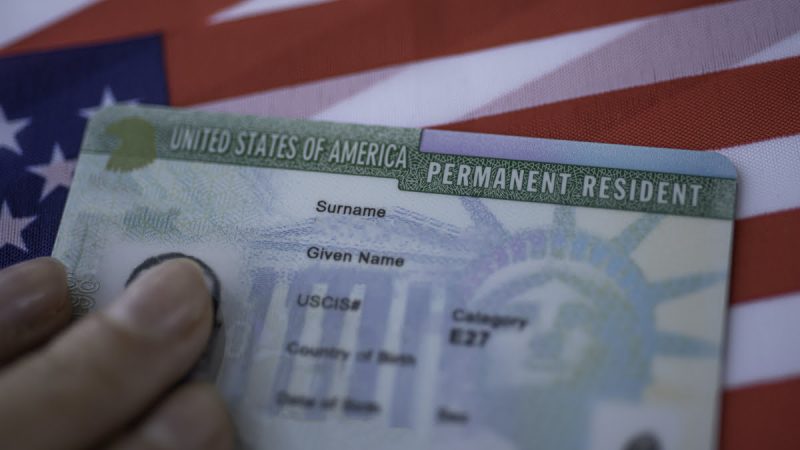
Visto per gli Stati Uniti: la guida definitiva per ottenere l’accesso al sogno americano

10 ragioni per evitare di trasferirsi negli Stati Uniti: scopri perché!
- octubre 15, 2023

Le magnifiche città degli Stati Uniti: vivi l’esperienza di un soggiorno tra il fascino e la grandiosità!
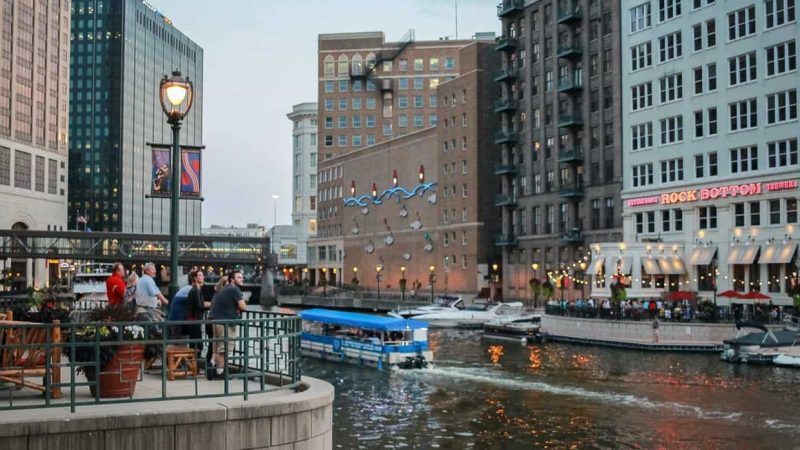
Milwaukee: la città faro degli Stati Uniti che non ti aspetti

7 Differences Between Travel Agent and Tour Operator
- Post author By varun
- Post date November 16, 2022

The travel industry is vast and expansive in nature. There exist multiple avenues through which a person can contribute to this ever-growing industry and consequently make a good amount of money. Due to the diversity of the platform, it can get confusing to comprehend who is engaged in what task.
One of the most common mix-ups takes place between what is known as a ‘travel operator’ and a ‘travel agent’. This blog will explain the significant difference between travel agent and tour operator. These two designations are different, but confusion arises because of the similarity in the terminology.
These two professions have characteristics that overlap each other, and in that sense, a travel agent can do specific tasks that are more likely to be done by a tour operator and the other way around.
In other words, travel agents and tour operators tackle the objectives of the travel and tourism sector. However, legitimate differences broadly divide the nature of both job descriptions.
Once you are aware of the difference between travel agent and tour operator, you will find it easier to avail services from each one of them in a more seamless manner.
What is a Travel Agent?
In the simplest terms, a travel agent is a representative of the travel and tourism industry who sells travel services directly to the end consumer. In this case, the end-consumer could be an individual, a group, or a corporation.
A travel agent is not in charge of creating the various travel services that customers look forward to buying, and their principal task is to act as a middleman between the tour travel companies and the clients. A travel agent makes it easier for the customer to find and avail of the right services at any time.
Becoming a travel agent takes more than knowing about the available travel services available in the market. In order to become a successful travel agent, one needs to imbibe excellent interpersonal and communication skills. Since the travel agent handles people, their overall people-handling skills take precedence over everything else.
Among other things, travel agents make customers aware of the different individual or compact packages that travel companies sell. When they are able to sell one or more of these services, they get a share of the profit.
What is a Tour Operator?
Tour operators are generally entities who are the real brains behind a particular travel service compilation. It could be an individual or a group of individuals who come together to build travel packages for interested travellers.
Tour operators work closely with various service providers, such as airlines and hotel chains, to coordinate a travel itinerary. A tour operator will work under the strict guidelines of travel regulations of the country where the operations will take place.
While plying their trade, tour operators could sell their services directly to the client or do it via a travel agent. A tour operator works in tandem with the latest offerings of the airline, hotel, and other allied industries to squeeze out the best deals for their prospective clients.
Be it transport and accommodations services, flights and airline tickets, hotel bookings, sightseeing, food, and lodging, it is the job of the tour operator to get everything sorted in the first place.
Once the entire structure of the services is compiled and adjusted per the end-user’s needs, they launch their travel services via online or offline means. In a way, the travel agent is dependent on the tour operator for success at both ends.
Seven Difference Between Travel Agent and Tour Operator
The main difference between a travel agent and a tour operator is that the latter is the architect of travel ideas and packages, which they then sell to either the travel agents linked to them or directly to the customers.
On the other hand, a travel agent will not develop travel plans from scratch but sell the same generated by tour operators they are working for or attached to.
Since travel agents are wholly dependent on tour operators for giving them the opportunity to sell services to clients, they make it a point to maintain camaraderie with a host of tour operators.
A travel agent will have close connections with several travel companies/tour operators as it increases their chances of getting hold of better deals and offers. They then bring those deals in front of the customer. Travel agents could maintain these links via the online mode or offline mode , or both.
This bond between a travel agent and a tour operator is based on mutual trust. Tour operators only allow specific travel agents to advertise and sell their services. Likewise, there will be travel agents who will work for only a chosen set of tour operators.
There will be instances when a tour operator would be more likely to sell its services to the clients via a travel agent. This happens when the tour operator is dealing with cases like international packages and targeted niche packages.
In some countries, such as the UK, the government has mandated that tour operators are required to engage travel agents to sell some specific services. This has been done with an eye to providing more employment opportunities to the local populace.
Importance of Knowing the Difference Between Travel Agent and Tour Operator
From the standpoint of the consumer, it becomes crucial to understand the difference between the travel agent and the tour operator. This is because as the end-user, you are supposed to know where you will find the correct information when trying to connect with either one of them.
There are often moments when customers blame travel agents for anomalies in services, which are the tour operators’ responsibility. The reverse is also true in other cases. When an instance like this occurs, it culminates in customers fighting with the travel agents and the tour operators.
The end user must also understand that a travel agent will not have total control over tour operators’ services. The travel agents go to great lengths to ensure that the customers are happy and satisfied with their travel experience.
However, in case there emerge untoward incidents, the customer should also fully cooperate with all the parties to come to an amicable solution.
At the end of the day, it is up to the consumer to determine which travel operators are rated highly in the public domain. Once they are confident of their choice, their next task would be to opt for a well-known travel agent who is diligent in their work and customer-friendly.
Once these two aspects are taken care of, the consumer can simply relax and interact with only the travel agent or both. Since travel is generally an expensive affair, you as a consumer must dedicate enough time to select only high-value tour operators and travel agents.
People mostly go on travels to recharge their exhausted minds after many days of hard work. Ergo, the right choice before the journey will go a long way in ensuring you have a memorable trip with your loved ones.
Now that we discussed the difference between travel agent and tour operator, we would like you to check out our other Pathfndr blogs. They will surely give you valuable insights into the travel and tourism industry.
This is a short description about myself and what this site is about. I hope you enjoy being here!
Destination management organisations vs. tour operators.
In Technology .

In the early days of the Internet, we tried to forecast how it would change the way travel was sold. A common prediction was that the Internet would cause travel agents to die out. Quite a few did close down, but quite a few are still in business. Another part of the industry was also forecast to undergo significant change. This was tourism. Tour operators sold holidays that saw tourists travelling to destinations whilst destination management organisations (DMOs) promoted the destinations.
DMO and tour operator activities were necessarily constrained by geography. Tour operators were and still are mostly outbound sales organisations. They are geographically close to their customers. Pre-Internet, they could only cost effectively market to audiences close to them. A tour operator based in the Britain would be advertising in British newspapers, running adverts on British TV channels, mailing brochures to British tourists and distributing brochures to British travel agents.
DMOs were and still are inbound organisations. They promote their destinations to the whole world. They would run promotional campaigns in key markets and work with the local travel trade to provide support in selling their destinations. In terms of marketing, the typical strategies of DMOs were all about building brand awareness.
The Internet brought the Web. Now DMOs could reach out to the world. This was not only affordable but also gave the opportunity for DMOs to get selling. Their destinations encompass product – accommodation, attractions, transport, restaurants, activities, etc. Here was the chance for DMOs to start making money. As they were close to the product, surely they should be putting it on sale? They would be competing against the tour operators who had been their distribution partners but what can you do? They simply could not ignore this opportunity to move from being cost centres to becoming profit centres.
The DMOs that wanted to forge ahead invested significantly in Destination Management Systems (DMSs). These would allow them to put product on sale worldwide on their new DMS driven websites. They grew their organisations so that they could contract products and operate call centres for sales and customer support.
Destination management organisations were forecast to be the tour operators of the future. The strategic reasoning for this seemed obvious. They had great access to product and a cost effective mode of global distribution. They also considered that they had the brand power. DMOs were, of course, the primary promotional organisations for their destinations. So quite a few DMOs launched DMS powered websites. These all tended to have a similar domain style – visithere.com, visitthere.com. Many were backed with considerable government investment.
So what went wrong? Why do DMOs not dominate product sales for their destinations?
Recent Trekksoft research might contribute to the answer. This was a survey of 61 DMOs. One question was “What percent of your budget/focus is spent on marketing experiences compared to accommodation?” The DMOs surveyed stated that 73% of their budgets/focus is mostly on experiences. Asked whether activities were bookable in real time, 85% of DMOs said no.
The new, online profit centres of many destination management organisations were meant to profit by selling accommodation in the main as this is what every tourist needs. However, this has not worked out well. DMOs have not managed to become primary distribution channels for their accommodation providers. Why this might be?
What was not forecast at the time when DMOs were investing in DMSs for product sales was the substantial growth of the OTAs such as Booking.com and Airbnb and how they would come to dominate the online accommodation sales. Neither was it forecast that PPC (pay per click) advertising would be so crucial in driving online visibility. The large online travel businesses have achieved the economies of scale that allow them to invest technological efficiency. This, in turn, provides the business economics that allows them to plough more and more funds into pay per click whilst still operating profitably. DMOs just do not have the right business model to permit them to do that. They have priorities other than simply selling product. Also, they only represent a single destination so could not hope to achieve the economies of scale required to compete with the OTAs.
The revealing question in the Trekksoft survey is “ How digitally relevant are you as a DMO? ” 64% responded that they are either behind the industry or trying their best to stay digitally relevant but struggle. For those DMOs that hoped to become their destinations’ dominant tour operator, it just hasn’t worked out as predicted.
Share this:
One comment.
Nice article, however confusion remains in my head as these days with Internet DMOs act like Tour Operators and vice versa. There are Tour Operators doing both inbound and outbound sales.
Leave a Comment Cancel reply
Your email address will not be published. Required fields are marked *

Tour organiser
Description.
Tour organisers are in charge of managing and supervising the itinerary of a touristic voyage and provide practical information to tourists.
Other titles
The following job titles also refer to tour organiser:
excursion leader tour escort travel and tourism tour manager tour leader excursion escort
Minimum qualifications
A high school diploma or equivalent is generally the minimum required to work as a tour organiser.
ISCO skill level
ISCO skill level is defined as a function of the complexity and range of tasks and duties to be performed in an occupation. It is measured on a scale from 1 to 4, with 1 the lowest level and 4 the highest, by considering:
- the nature of the work performed in an occupation in relation to the characteristic tasks and duties
- the level of formal education required for competent performance of the tasks and duties involved and
- the amount of informal on-the-job training and/or previous experience in a related occupation required for competent performance of these tasks and duties.
Tour organiser is a Skill level 2 occupation.
Tour organiser career path
Similar occupations.
These occupations, although different, require a lot of knowledge and skills similar to tour organiser.
travel consultant tour operator representative guide park guide tourist information officer
Long term prospects
These occupations require some skills and knowledge of tour organiser. They also require other skills and knowledge, but at a higher ISCO skill level, meaning these occupations are accessible from a position of tour organiser with a significant experience and/or extensive training.
tourist information centre manager mountain guide tourism contract negotiator travel agency manager sports instructor
Essential knowledge and skills
Essential knowledge.
This knowledge should be acquired through learning to fulfill the role of tour organiser.
- Local area tourism industry : The characteristics of local sights and events, accommodation, bars and restaurants and leisure activities.
- Geographical areas relevant to tourism : The field of tourism geography in Europe as well as the rest of the world in order to point out relevant tourism areas and attractions.
Essential skills and competences
These skills are necessary for the role of tour organiser.
- Oversee travel arrangements : Make sure that travel arrangements run according to plan and ensure effective and satisfactory service, accommodation and catering.
- Maintain working relationships : Ensure effective working relationships with colleagues and others. Maintain them over long periods of time.
- Manage health and safety standards : Oversee all personnel and processes to comply with health, safety and hygiene standards. Communicate and support alignment of these requirements with the company’s health and safety programmes.
- Welcome tour groups : Greet newly arrived groups of tourists at their starting point to announce details of upcoming events and travel arrangements.
- Inform tourist groups on logistical times : Brief groups of tourists on departure and arrival times as part of their itinerary.
- Handle personal identifiable information : Administer sensitive personal information on customers securely and discreetly
- Assist at check-in : Help holidaymakers with their check-in and show them their accommodation.
- Organise entry to attractions : Arrange the enrolment in activities and attractions. Arrange payments and pre-bookings and distribute information leaflets.
- Maintain customer service : Keep the highest possible customer service and make sure that the customer service is at all times performed in a professional way. Help customers or participants feel at ease and support special requirements.
- Coordinate performance tours : Schedule planning for a series of event dates, plan timetables, organise venues, accommodations and transportation for longer tours.
- Organise transportation of tour groups : Arrange the rent of cars or buses for groups and schedule timely departures and returns.
- Liaise with guest facilities providers : Communicate with hotel personnel, transport companies and other relevant services well before arrival and ensure everything is accurately planned beforehand.
- Assist clients with special needs : Aid clients with special needs following relevant guidelines and special standards. Recognise their needs and accurately respond to them if needed.
- Handle veterinary emergencies : Handle unforeseen incidents concerning animals and circumstances which call for urgent action in an appropriate professional manner.
- Apply foreign languages in tourism : Use the mastery of foreign languages orally or written in the tourism sector in order to communicate with collaborators or customers.
- Build business relationships : Establish a positive, long-term relationship between organisations and interested third parties such as suppliers, distributors, shareholders and other stakeholders in order to inform them of the organisation and its objectives.
- Perform services in a flexible manner : Adapt service approach when circumstances change.
- Check travel documentation : Control tickets and travel documents, allocate seats and note food preferences of people on tour.
Optional knowledge and skills
Optional knowledge.
This knowledge is sometimes, but not always, required for the role of tour organiser. However, mastering this knowledge allows you to have more opportunities for career development.
- Tourist resources of a destination for further development : The study of touristic resources in a specific area and its potential for further development of new touristic services and events.
Optional skills and competences
These skills and competences are sometimes, but not always, required for the role of tour organiser. However, mastering these skills and competences allows you to have more opportunities for career development.
- Read maps : Read maps effectively.
- Maintain relationship with suppliers : Build a lasting and meaningful relationship with suppliers and service providers in order to establish a positive, profitable and enduring collaboration, co-operation and contract negotiation.
- Use different communication channels : Make use of various types of communication channels such as verbal, handwritten, digital and telephonic communication with the purpose of constructing and sharing ideas or information.
- Participate in tourism events : Take part in tourism fairs and exhibitions in order to promote, distribute and negotiate tourism services and packages.
- Plan medium to long term objectives : Schedule long term objectives and immediate to short term objectives through effective medium-term planning and reconciliation processes.
ISCO group and title
4221 – Travel consultants and clerks
- Tour organiser – ESCO
Related articles

What do you want to do with this job?
You will be brought to the forum page
Requires a business account
There was a problem reporting this post.
Block Member?
Please confirm you want to block this member.
You will no longer be able to:
- See blocked member's posts
- Mention this member in posts
- Invite this member to groups
- Message this member
- Add this member as a connection
Please note: This action will also remove this member from your connections and send a report to the site admin. Please allow a few minutes for this process to complete.
Differences of Tour Operators and Travel Agents
Tour Operators & travel Agents are different in Malaysia! And the public have had the wrong perception for long time. In Malaysia, Tour Operators and Travel Agents are different and play different roles. In a factory scenario, a Tour Operator is like the production department and the Travel Agent is like the Sales Department…
A Tour Operator is the organizer and provider of package holidays. It is often referred as the Ground Handler. The Tour Company will make contracts with hotels and resorts, airlines and ground transport companies like private cars, buses, vans, ferries and trains & etc. With all the necessary pricing and information compiled, the Tour Operator will draft detailed tour packages and distribute to Travel Agents in Travel Agent Directory in Malaysia and even overseas.
The roles & responsibilities of a Tour Operator are booking and arranging:
– Transportation: Chaffered Car, Chartered Bus & Van, Air Ticket, Train Ticket, Ferry Ticket, Cruise Ticket, other transit modes and even special vehicles like trishaw. – Tour Guide: All Tour Guides must be licensed by the Ministry of Tourism Malaysia after attending and examined in a professional Tourist Guide Courses. – Sight Seeing: Entrance for tourist destinations, eco-tour, adventures tour, jungle trekking, snorkeling & scuba diving, island hopping and even handicraft or cultural & living experiences. – Food & Beverage: Breakfast, Tea Time or Tea Break, Lunch & Dinner, whether by set, buffet or packed food. – Accommodation: Hotels, Resorts, Service Apartments, Camping Sites, Dormitories, Training Camps, Chalets, Tree Houses or traditional houses & habitats that accommodating travelers. – Activities: Tele-match, treasure hunt, paint ball, team building, outside office meeting… – Special Events: Company dinner, karaoke contest.
On the other hand, Travel Agents do not operate tours. Travel agencies gives traveling advices to travelers, promote and sell the tour packages that they have from various Tour Operators, then administer the tour bookings. Travel Agents usually are set up in prime locations with heavy traffic such as beside the main roads, inside crowed shopping malls or at the ground floor of a landmark building.
The roles & responsibilities of a Travel Agent are:
– Selling ells travel related products and services, particularly package tours to end-user customers on behalf of third party travel suppliers, such as airlines, hotels, tour operator and tour companies, and cruise lines & etc. – Most travel agents have a special department devoted to travel arrangements for business travelers, while some agencies specialize in commercial and business travelers. – Some also serve as general service agents for foreign travel companies in different countries. – Act as an agent for tour packages: – Buy tour packages or tour services at discounts & sell with profits. – Get commissions from suppliers & other tour companies. – Act as a ticketing agent for transportation (e.g. airlines, ferry, bus, train & etc). – Other commercial operations are undertaken: insurance, travel guides, car rental, Bureau de change, private tour guide & etc. – Offer impartial travel advice to the customer.
Next time, if you traveling in small group less than 10 travelers, it is advisable to engage a Travel Agent. Do not try to find the best travel agent in Malaysia. There is no such myth! Just go with the travel agent that suit your traveling needs and budgets or the tour agent that you trusted the most. However, if you are organizing a group tour like company tour, a Tour Operator will be able to provide you a more suitable tailor-made service.
The above information are guidelines and advices that 88Holidays provided to its Corporate Clients in organizing group tour. It is simple but useful information to help organizing a successful company tour with many years experiences.
(88Holidays) is the tour company under 88Group of Companies. As one of the top group tour operator in Malaysia, 88Holidays is specialized in organizing company tour, meeting and training packages, conferences & conventions, tele-match and treasure hunt, team building workshops, company dinner & etc for companies & factories! The only testimonial 88Holidays is proud of is its repeating corporate clients who let this trusted tour operator organizes their company tours in Malaysia and even overseas years after years.
Leave a Response Cancel reply
Save my name, email, and website in this browser for the next time I comment.
You Might Also Like

Indulge in Luxury: Pamper Yourself with Spa Days in Beautiful Dorset

The Ultimate Guide to Applying for a Passport for an Adopted Child
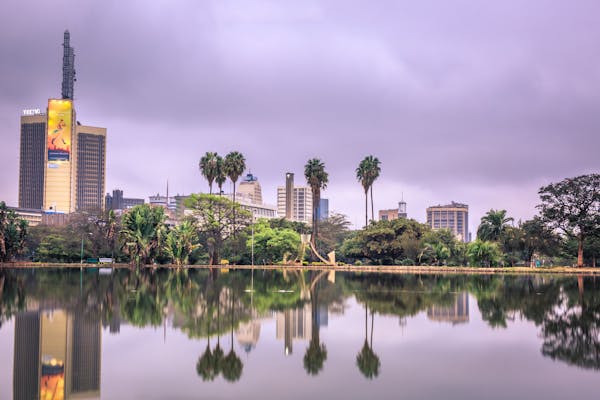
Hotels in Manchester – Which One are Right For You?

Family Vacation Travel Activities on the Beach

IMAGES
COMMENTS
Definizione Tour Operator. Un Tour Operator è un'azienda che crea e commercializza pacchetti turistici ad un prezzo forfetario (unico , tutto compreso).Nella filiera turistica, il più delle volte, i tour operator vendono i propri prodotti alle agenzie di viaggio al dettaglio e non direttamente al cliente finale.. Differenza tra Tour Operator e Agenzia di Viaggio
Ultimo aggiornamento: 25 ottobre 2023. La differenza tra un tour operator e un'agenzia di viaggi è che il tour operator organizza e pianifica interamente i viaggi, inclusi trasporti, alloggi, visite turistiche e altre attività, mentre un'agenzia di viaggi si occupa principalmente di prenotare i servizi di viaggio per conto dei clienti.
To put it simply, a tour operator is the person or organisation who takes the individual elements of a holiday (e.g. transfer, hotel, transport) and packages these together. The types of package vary. Most commonly, tour operators are associated with mass tourism and the traditional package holiday market. However, tour operators do also play ...
Qual è la differenza tra tour operator e Tour Organizer? Il Tour Operator, Operatore Turistico o Tour Organizer, è l'azienda che fornisce l'intero viaggio, che organizza l'itinerario completo, risparmiandoti qualsiasi onere, creando un prodotto completo basato sull'esperienza e la conoscenza diretta delle destinazioni e, ovviamente, secondo i tuoi desideri!
Here is a comparison of what a travel agent does and what a tour operator does: Aspect. Tour Operator. Travel Agent. Role. Creates and operates tour packages and itineraries. Sells tour packages, flights, hotels on behalf of suppliers. Services. Designs tours, contracts services, manages logistics.
L'organizzatore di viaggio ( tour operator) è il soggetto che realizza la combinazione degli elementi del pacchetto turistico, ossia il trasporto, l'alloggio ed gli altri servizi turistici, come visite, escursioni, ecc. Il tour operator può commercializzare i pacchetti turistici direttamente ovvero avvalendosi dell'opera del travel agent.
The tour operator is an integral component of tourism, yet many people are unclear about what a tour operator actually is or or what they do. In this video I...
The tour operator whose product they sell takes the responsibility for the holiday; the travel agent does not. Therefore the agent usually does not have an ATOL licence or any bonding in place, but relies on the tour operator to cover this. Nowadays it is fair to say, the difference between tour operator and travel agent is blurred.
A tour operator is a business that typically combines and organizes accommodations, meals, sightseeing and transportation components, [1] in order to create a package tour. They advertise and produce brochures to promote their products, holidays and itineraries. Tour operators can sell directly to the public or sell through travel agents or a ...
L'agenzia di viaggio agisce come intermediario tra i clienti e i fornitori di servizi turistici, mentre il tour operator si assume la responsabilità diretta dell'intero viaggio. Inoltre, il tour operator può anche offrire servizi specifici come guide turistiche, assistenza in loco e programmi di animazione.
14 risposte. I tour operator sono imprese che vendono pacchetti turistici.l'agenzia viaggi svolge una funzione di intermediaria tra tour operator e clienti.I tour organizer sono gli organizzatori di viaggi di gruppo su domanda. Un Tour Operator è un'azienda che crea e commercializza pacchetti turistici ad un prezzo forfetario (unico , tutto ...
Il tour organizer svolge una attività di consulenza accompagnata dalla prestazione diretta di alcuni servizi (selezioni alternative, prenotazioni, conferme, assistenza prima e durante il viaggio, ecc.). Il prodotto finale è quindi venduto direttamente ai committenti ad un prezzo complessivo determinato dallo stesso operatore applicando alle ...
Tour operators offer invaluable services to the group travel industry. Their knowledge and expertise enables them to help you find destinations and itineraries that will thrill your travelers, and their networks of professional employees and partners can handle even the most complicated of travel logistics, taking most of the hassle of travel ...
Organizziamo la tua vacanza. Il Tour Operator, Operatore Turistico o Tour Organizer, è l'azienda che fornisce l'intero viaggio, che organizza l'itinerario completo, risparmiandoti qualsiasi onere, creando un prodotto completo basato sull'esperienza e la conoscenza diretta delle destinazioni e, ovviamente, secondo i tuoi desideri! Quando il Tour Operator è anche "tailor-made" come IDEE PER ...
A tour operator is a business or a person who designs and plans package vacations. These packages often include a variety of travel-related services, such as lodging, transportation, sightseeing, and occasionally meals, into a single item. These packages are created by tour operators using their knowledge, research, and connections to other ...
Providing customer support: A tour operator provides customer support to help their clients prepare for trips. For example, they may answer customers' questions about a destination, provide information about currency exchange rates or notify them of any changes to an itinerary. Preparing tour budgets: Tour operators work with customers to help ...
Qual è la differenza tra tour operator e Tour Organizer? Il Tour Operator, Operatore Turistico o Tour Organizer, è l'azienda che fornisce l'intero viaggio, che organizza l'itinerario completo, risparmiandoti qualsiasi onere, creando un prodotto completo basato sull'esperienza e la conoscenza diretta delle destinazioni e, ovviamente, secondo i tuoi desideri!
The differences between tour operators and operators can be seen in a few details. Each job has different responsibilities and duties. While it typically takes 1-2 years to become a tour operator, becoming an operator takes usually requires 2-4 years. Additionally, a tour operator has an average salary of $47,294, which is higher than the ...
Un tour operator è un'azienda che organizza e vende pacchetti turistici completi, compresi trasporti, alloggi, visite guidate e altre attività. Un Tour Organizer, invece, si occupa principalmente di organizzare e coordinare specifiche attività o eventi all'interno di un viaggio o di un tour già prenotato tramite un tour operator.
The main difference between a travel agent and a tour operator is that the latter is the architect of travel ideas and packages, which they then sell to either the travel agents linked to them or directly to the customers. On the other hand, a travel agent will not develop travel plans from scratch but sell the same generated by tour operators ...
Tour operators sold holidays that saw tourists travelling to destinations whilst destination management organisations (DMOs) promoted the destinations. DMO and tour operator activities were necessarily constrained by geography. Tour operators were and still are mostly outbound sales organisations. They are geographically close to their customers.
These occupations require some skills and knowledge of tour organiser. They also require other skills and knowledge, but at a higher ISCO skill level, meaning these occupations are accessible from a position of tour organiser with a significant experience and/or extensive training. tourist information centre manager. mountain guide.
A Tour Operator is the organizer and provider of package holidays. It is often referred as the Ground Handler. The Tour Company will make contracts with hotels and resorts, airlines and ground transport companies like private cars, buses, vans, ferries and trains & etc. With all the necessary pricing and information compiled, the Tour Operator ...